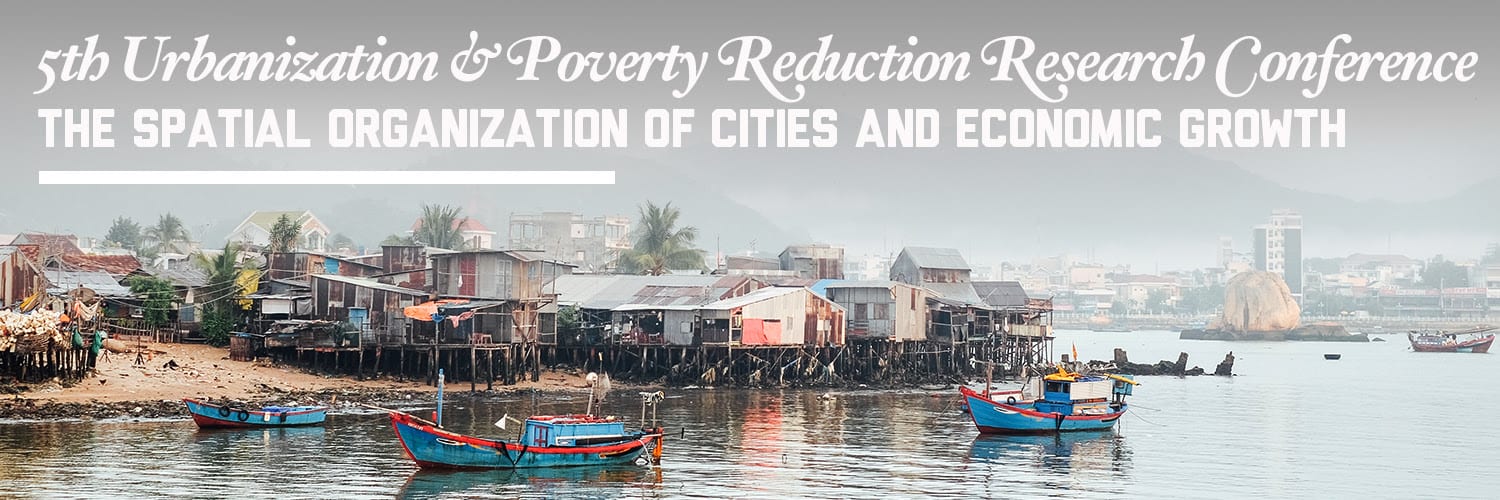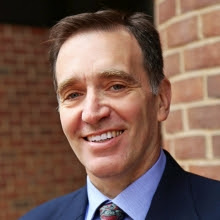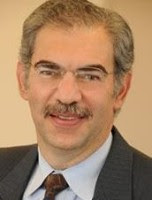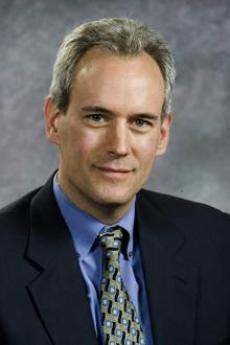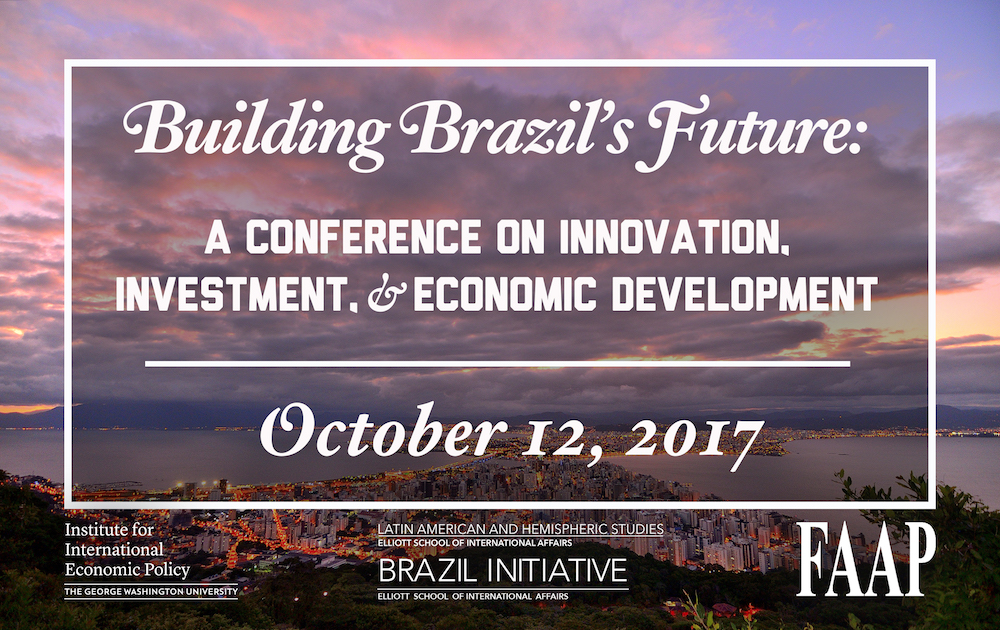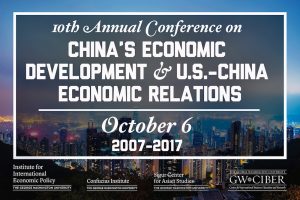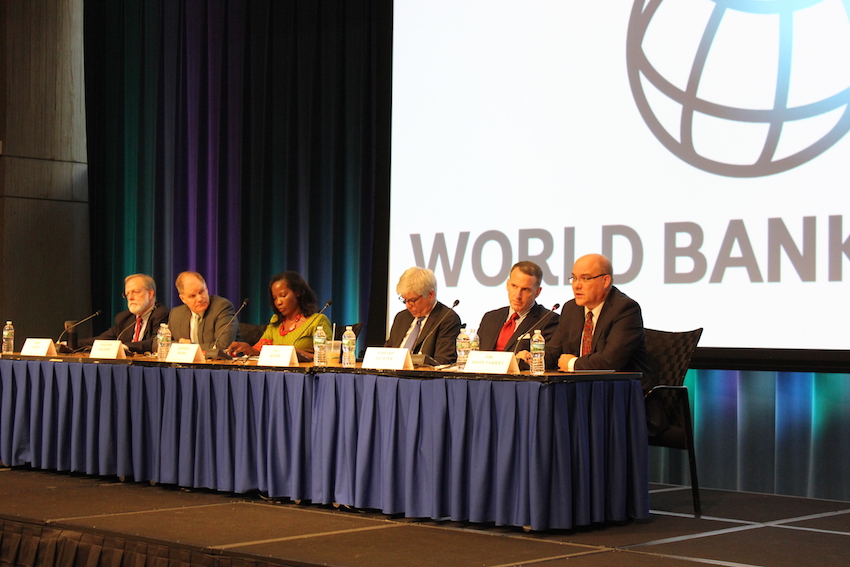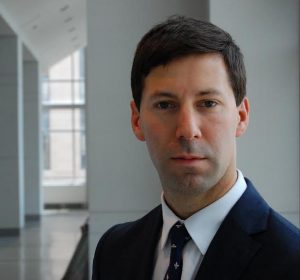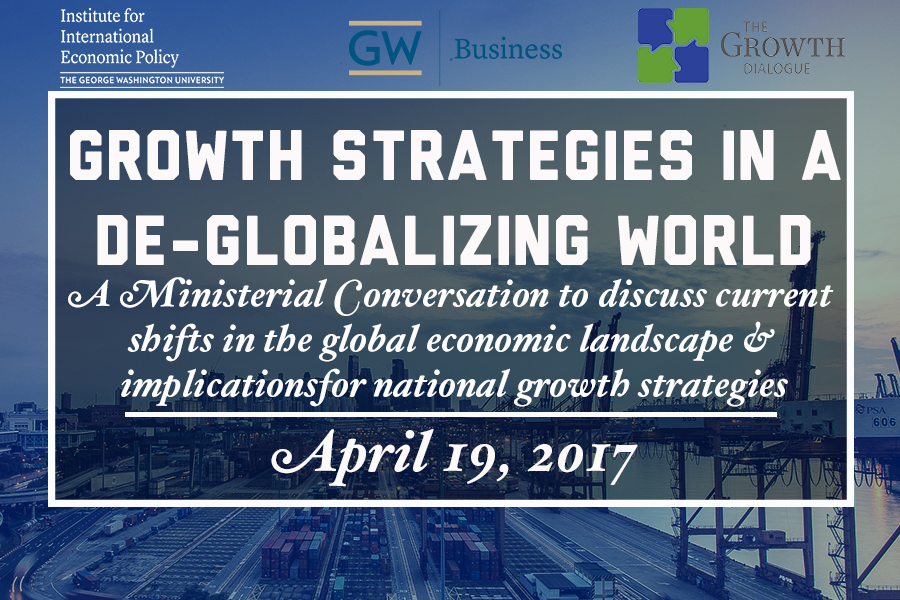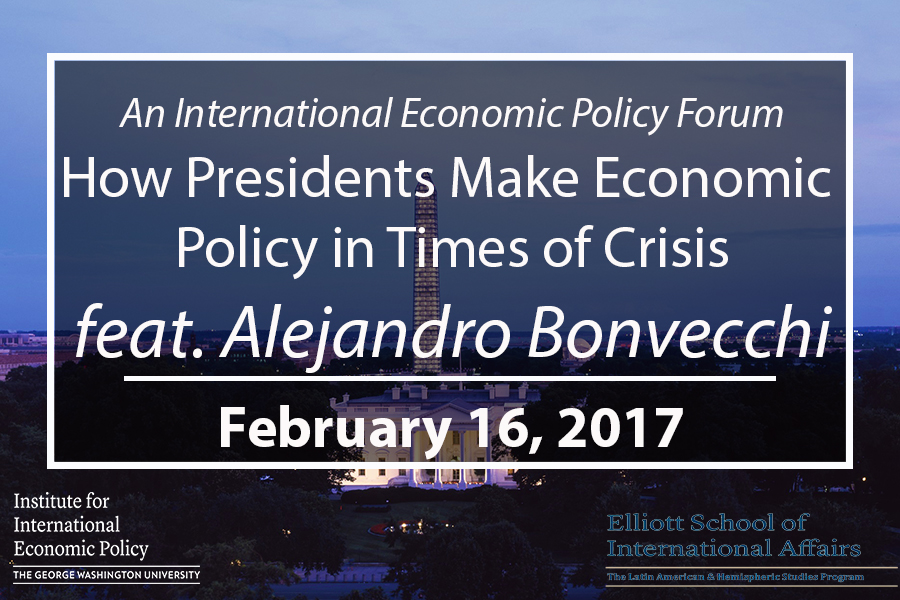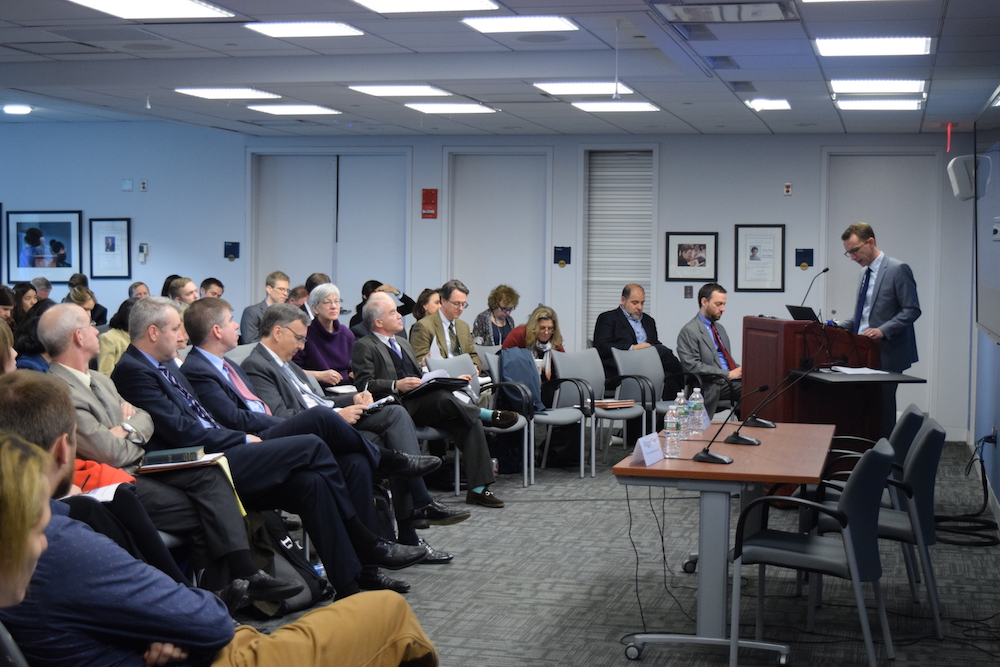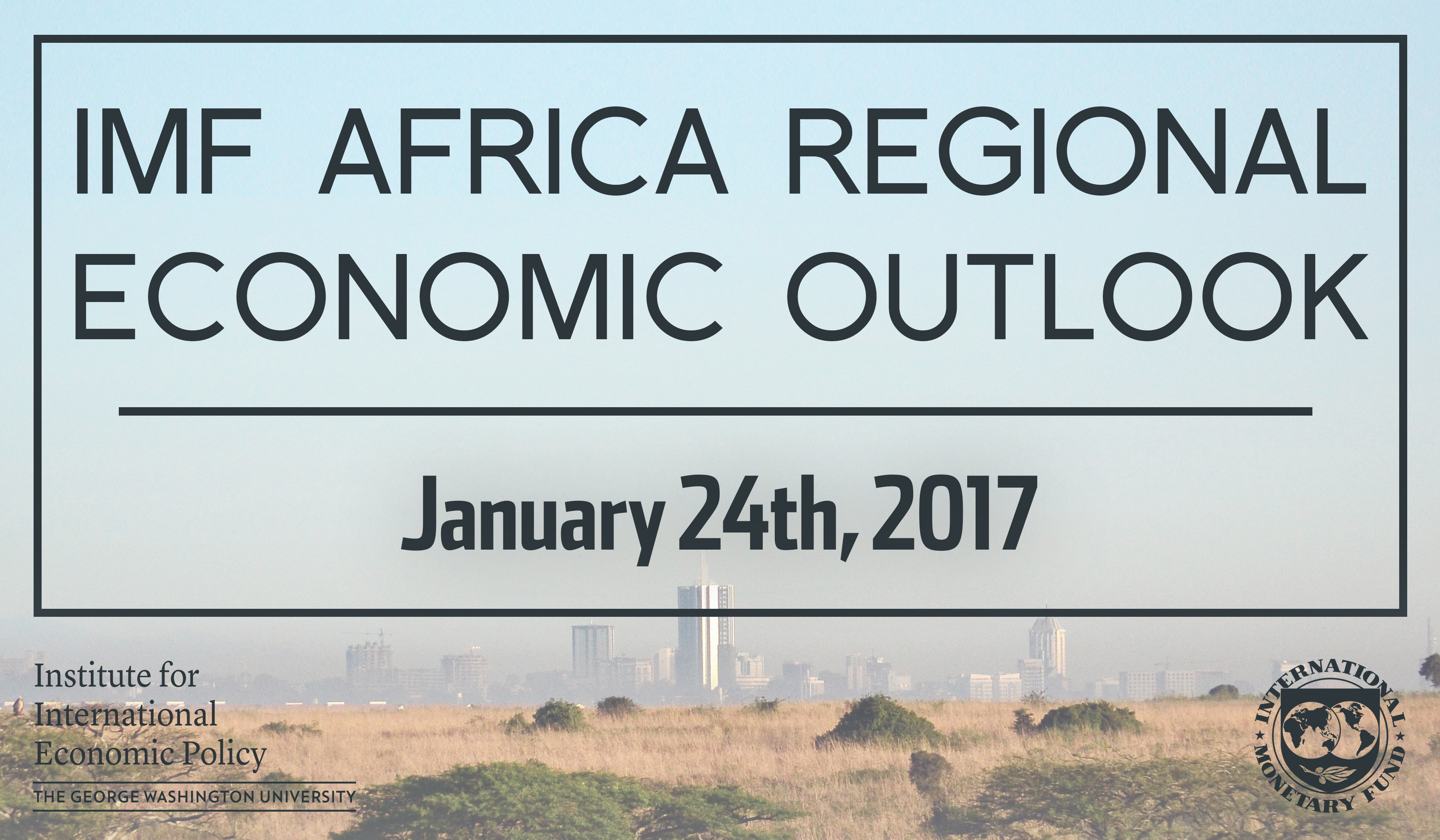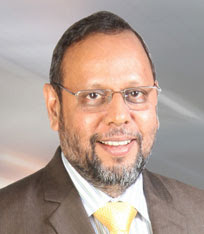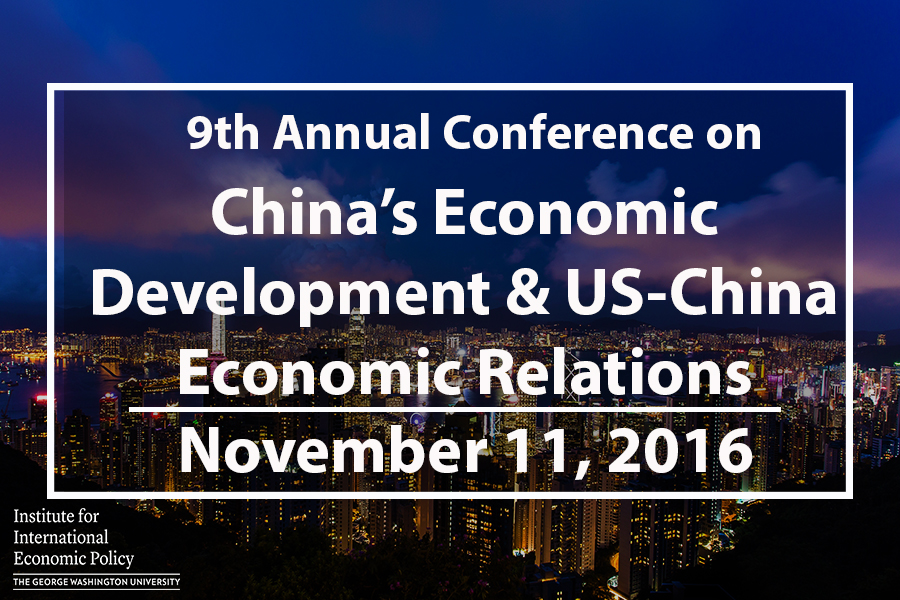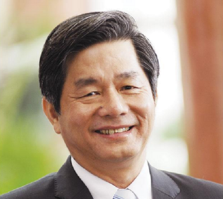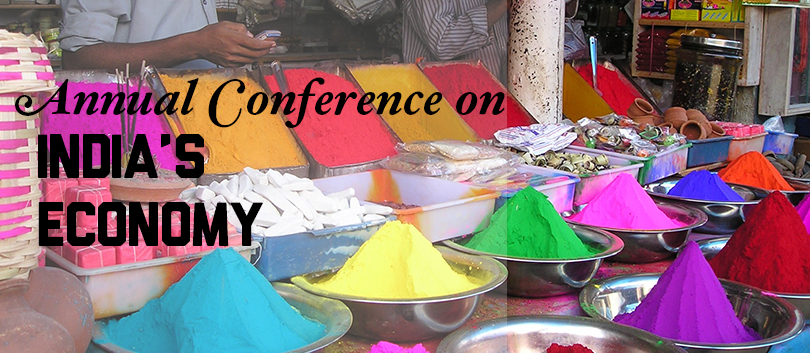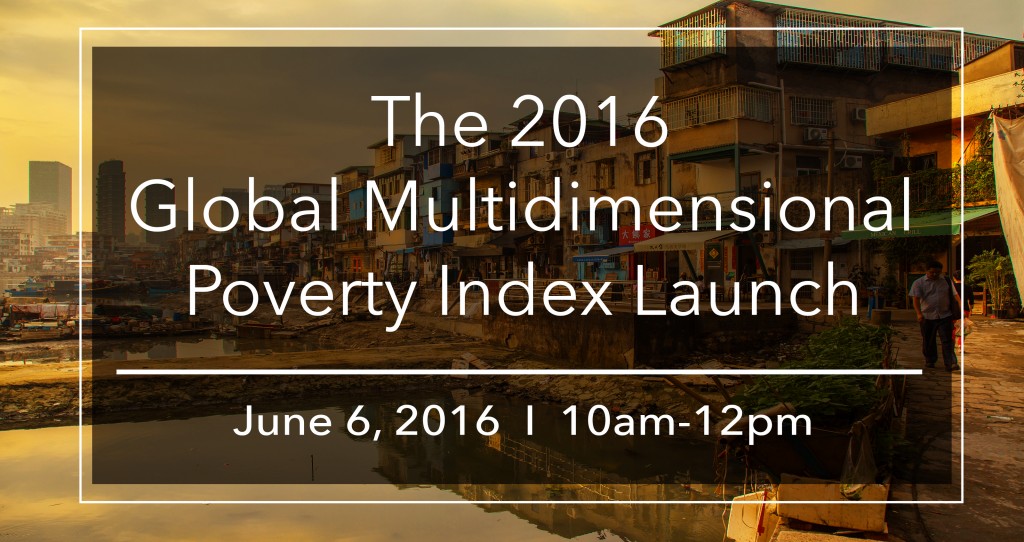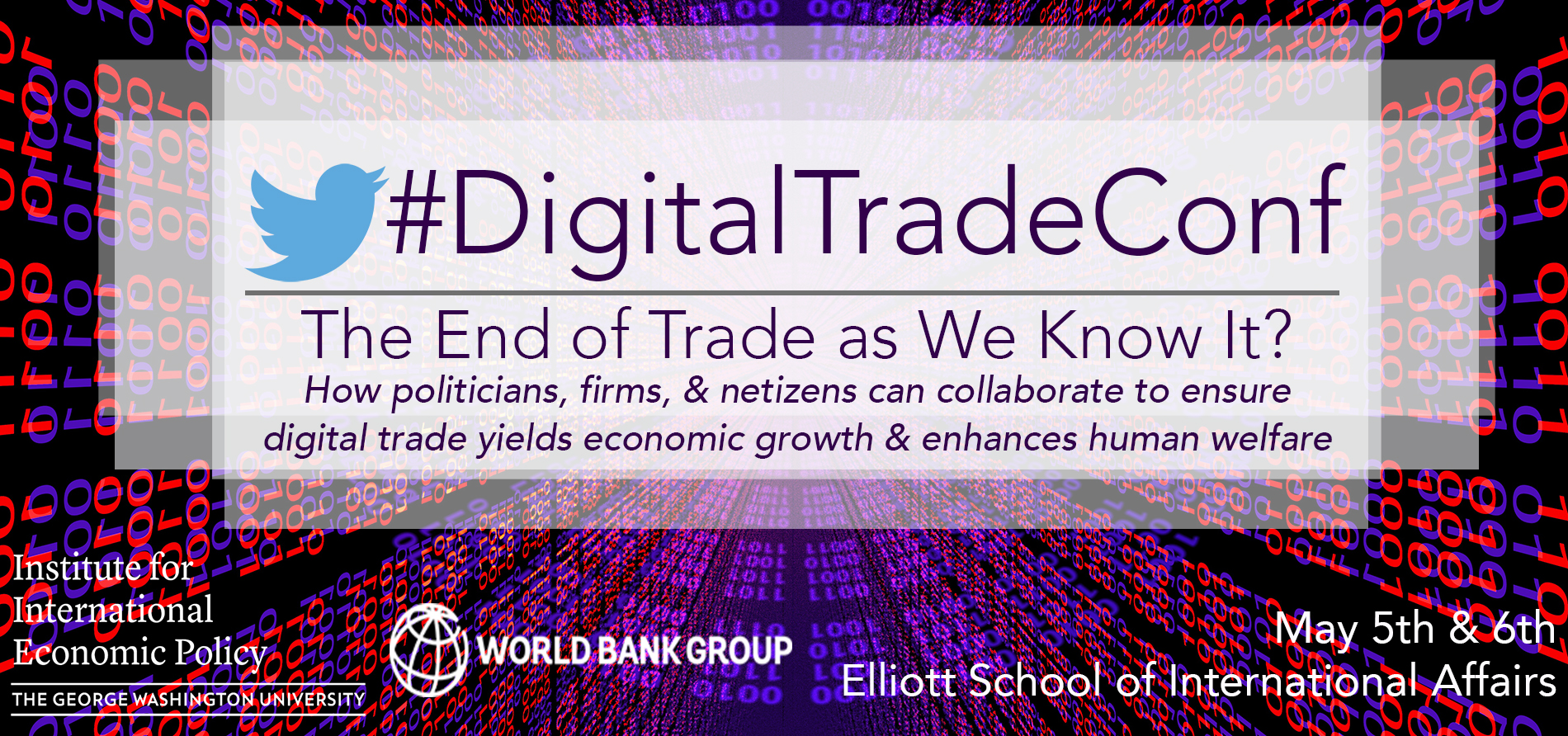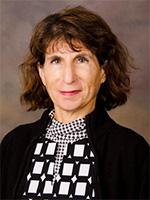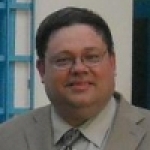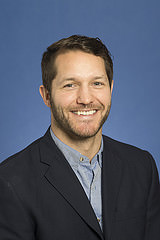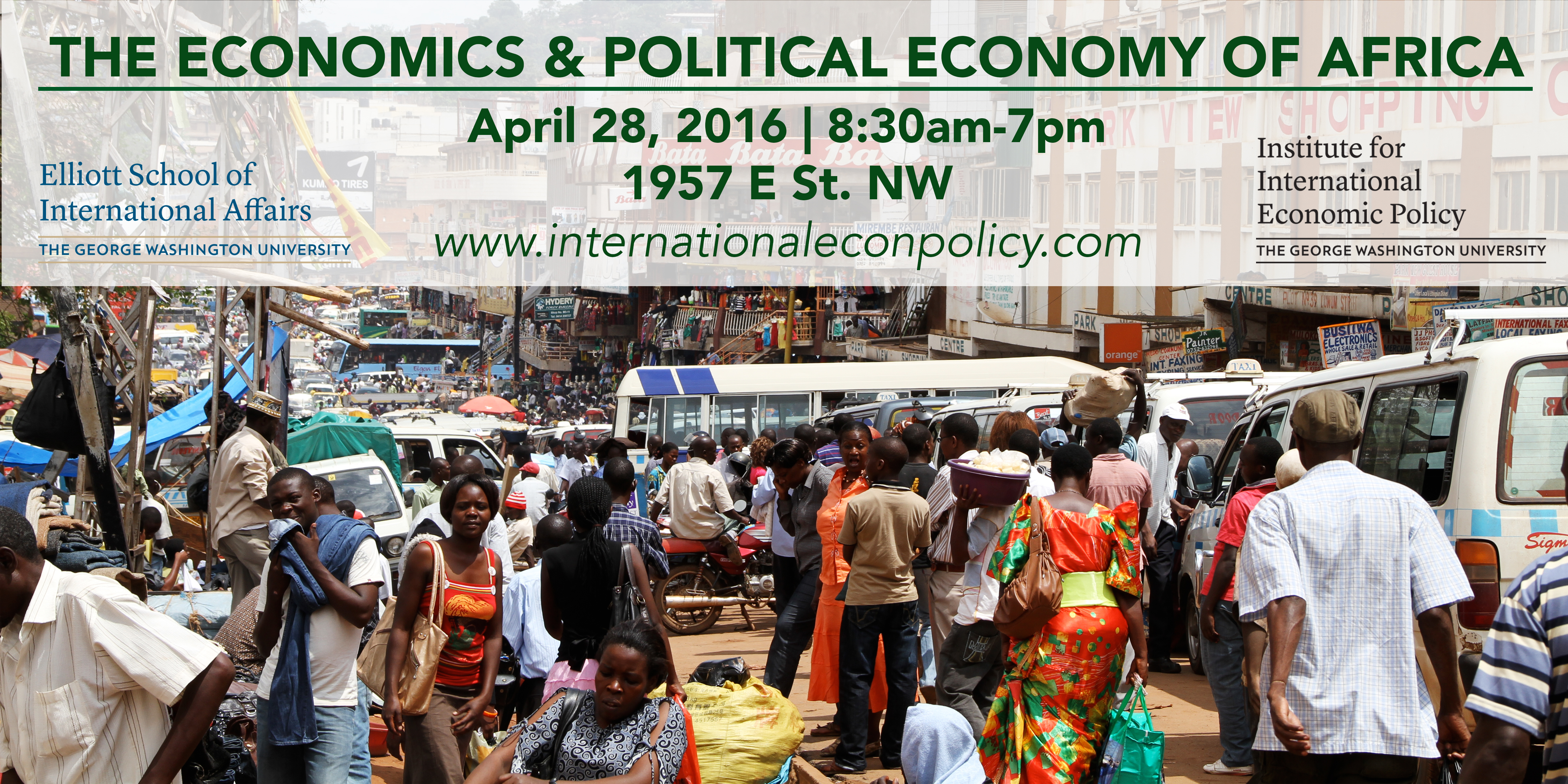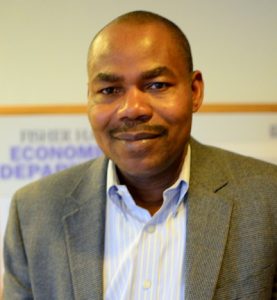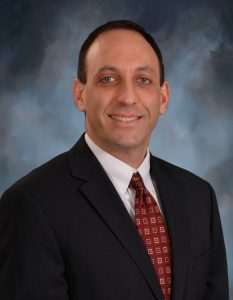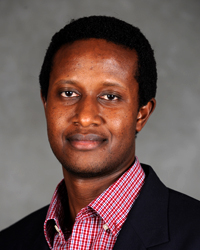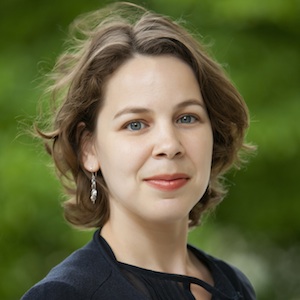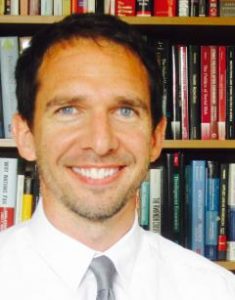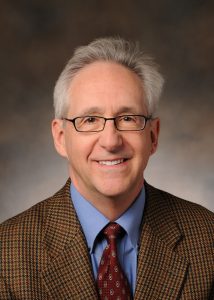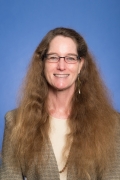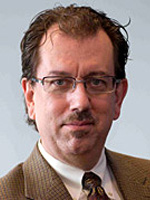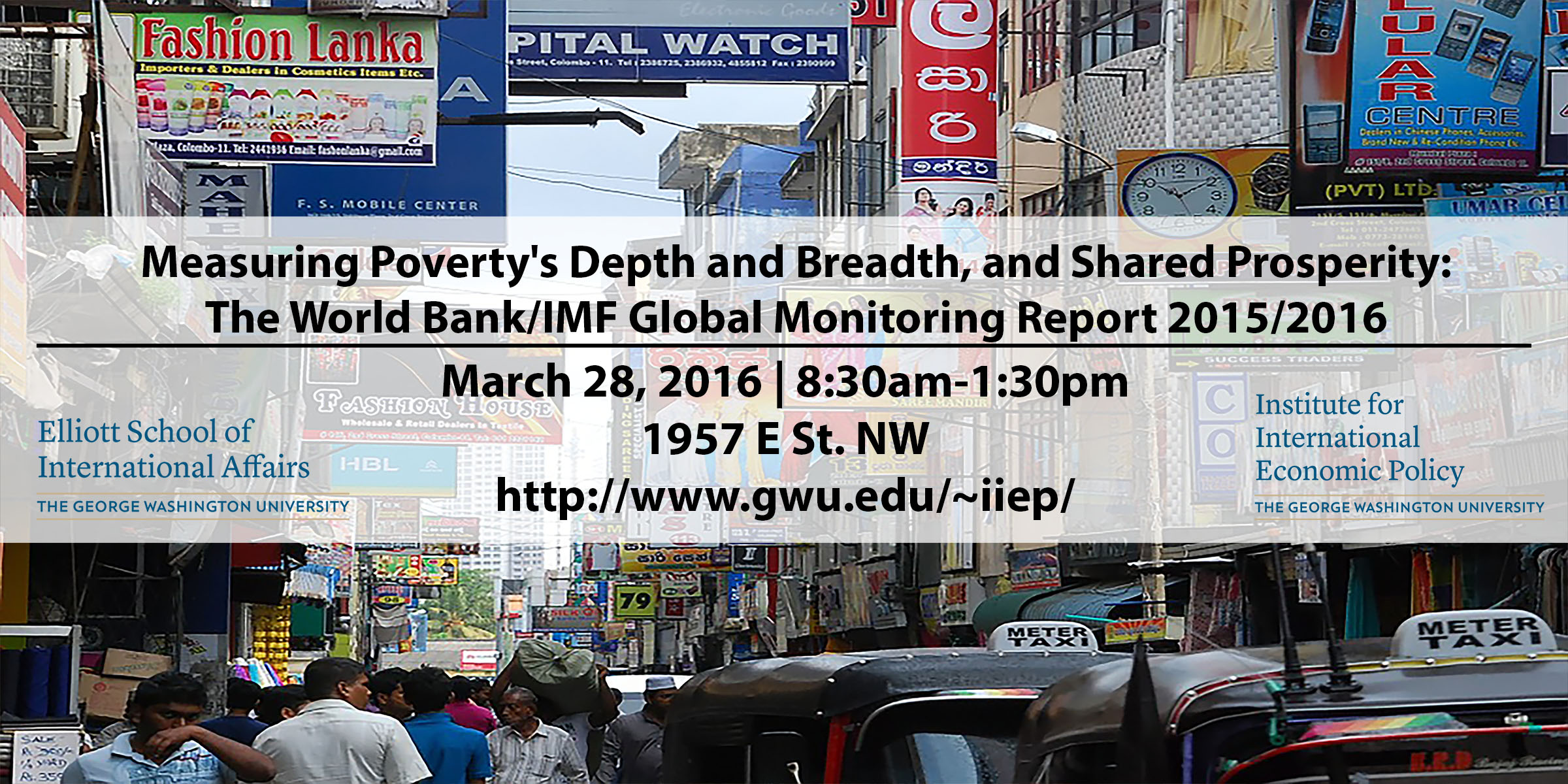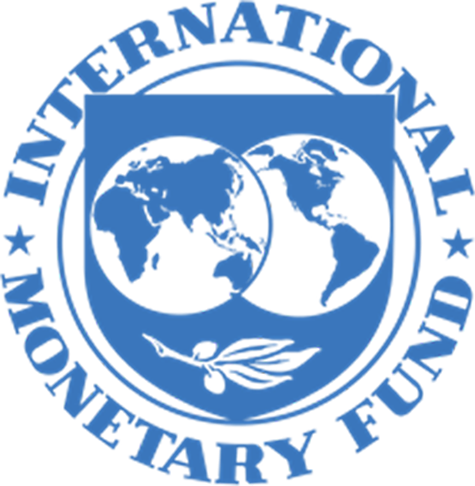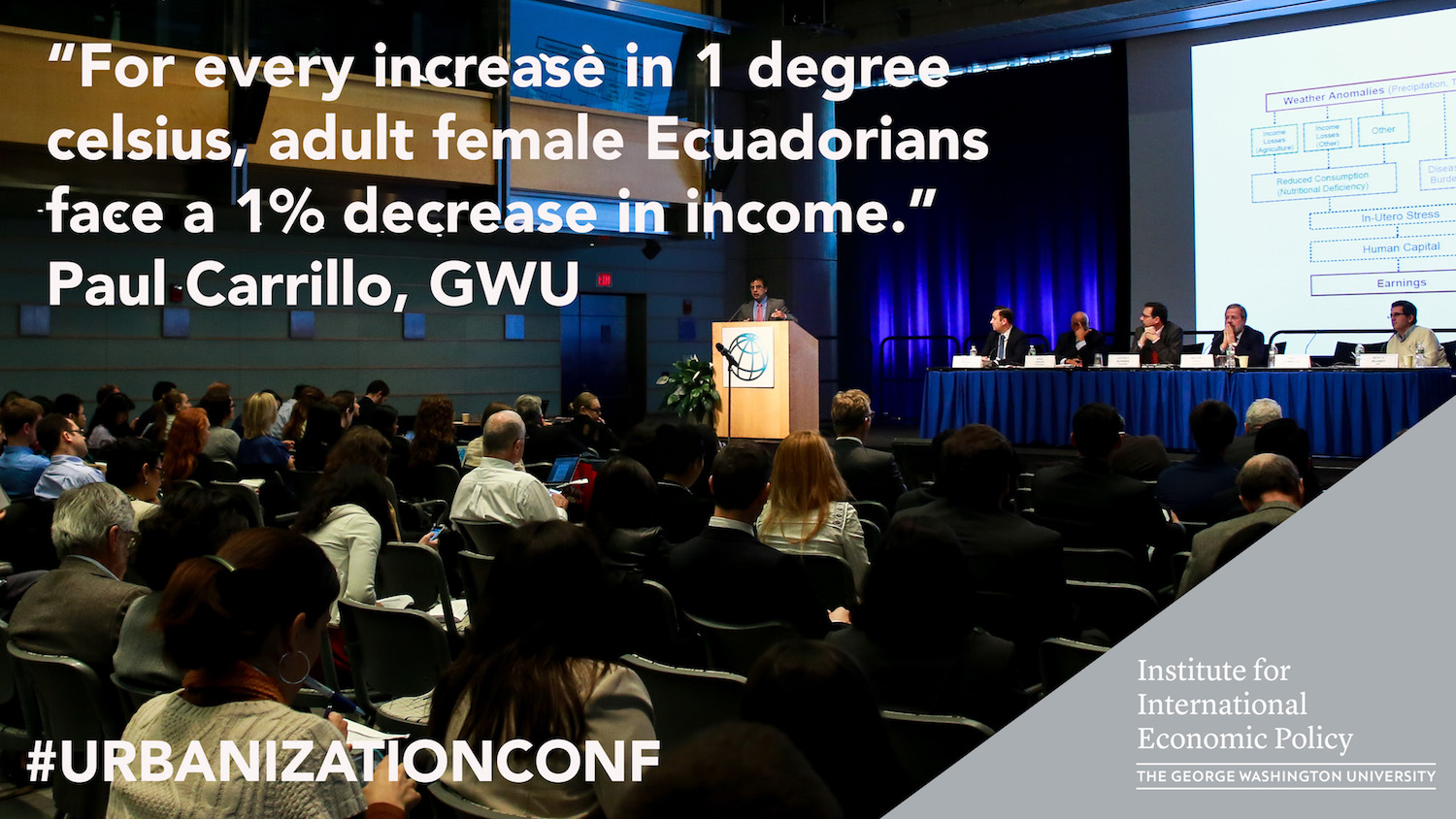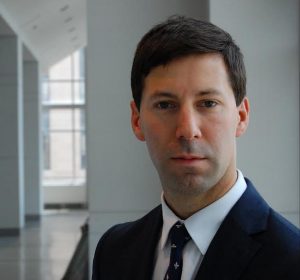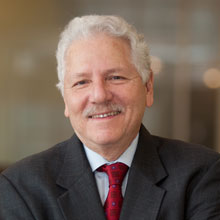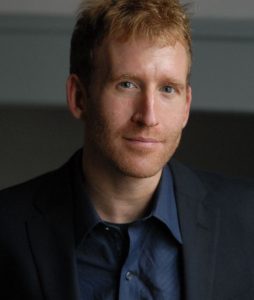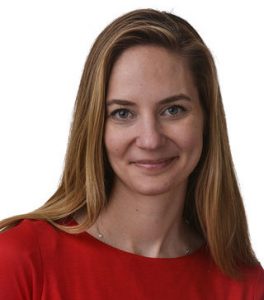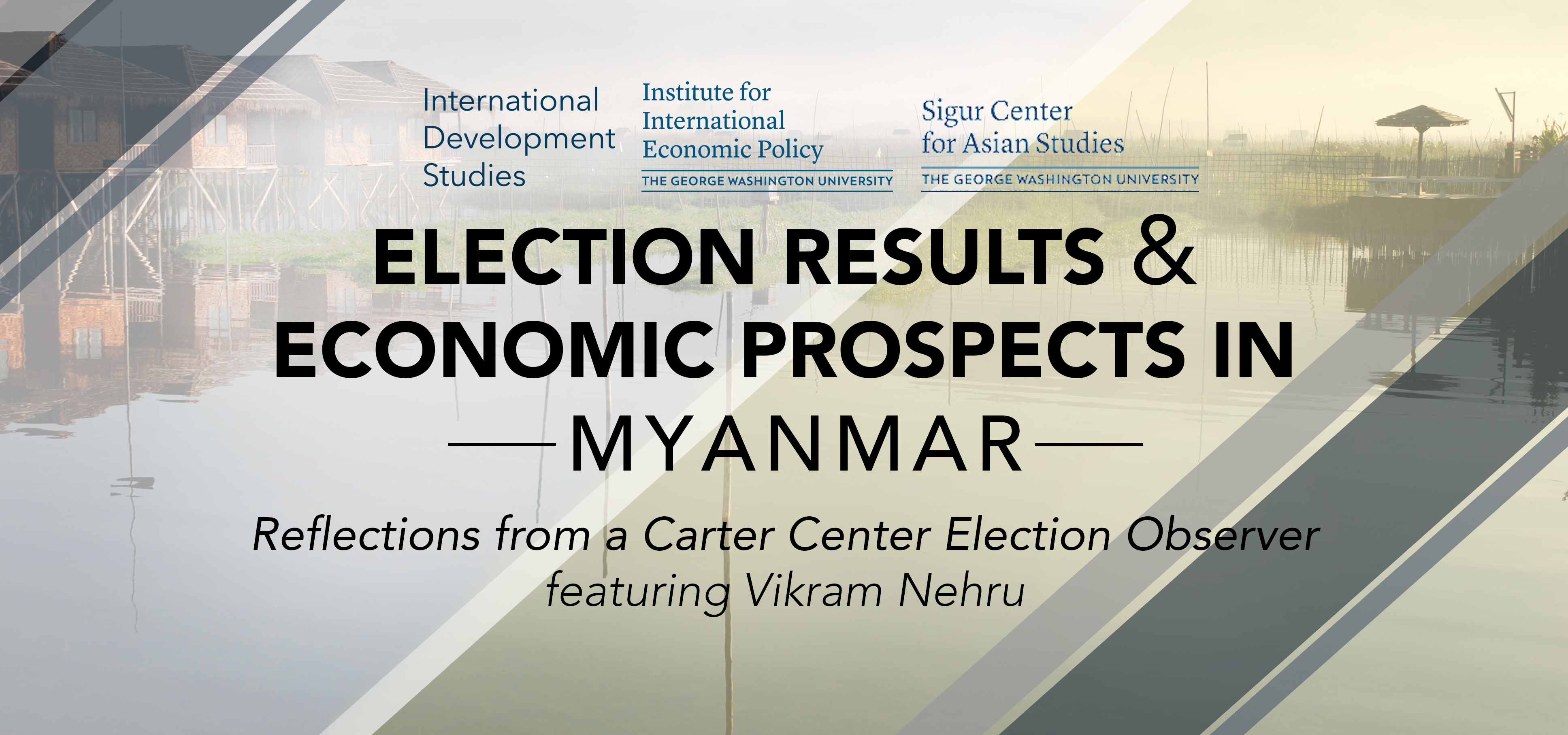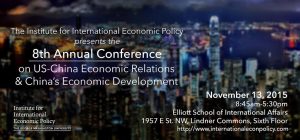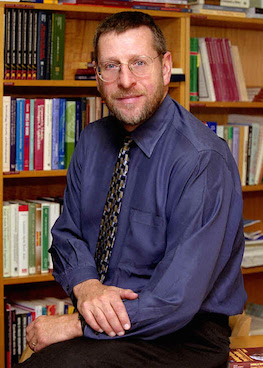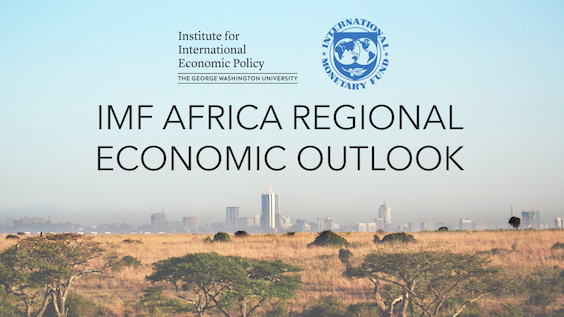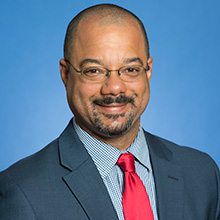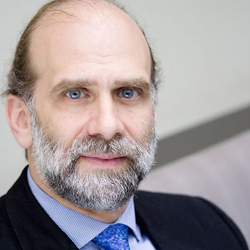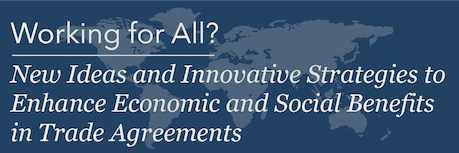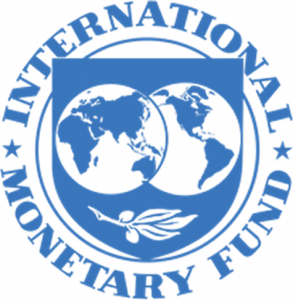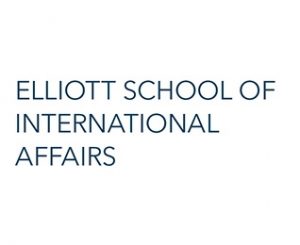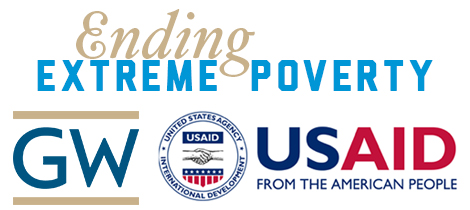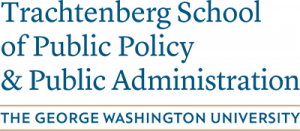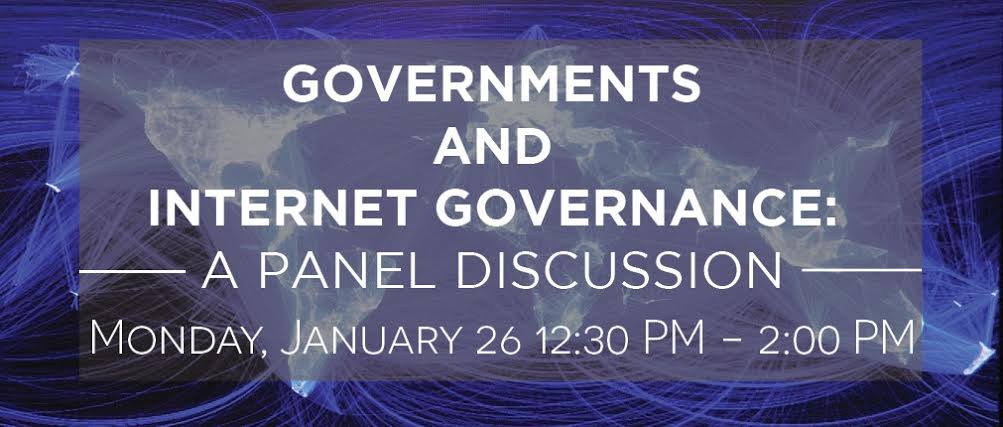Keynote Speakers
Jan K. Brueckner
Professor of Economics, University of California-Irvine
Jan K. Brueckner (AB, UC Berkeley; PhD, Stanford University) was long- time faculty member at the University of Illinois at Urbana-Champaign before coming to UCI in 2005. Brueckner has published extensively in the reas of urban economics, public economics, housing finance, and the economics of the airline industry, with more than 125 journal articles to his credit. He is also author of an innovative new textbook, Lectures on Urban Economics (MIT Press, 2011). Brueckner served as editor of the Journal of Urban Economics for 16 years and is currently a member of the editorial boards of 6 journals. He has served as a consultant to the World Bank, many of the major airlines, and other organizations.
Matthew Kahn
Professor, UCLA Institute of the Environment, the Department of Economics, and the Department of Public Policy
Matthew E. Kahn is a Professor at the UCLA Institute of the Environment, the Department of Economics, and the Department of Public Policy. He is a research associate at the National Bureau of Economic Research. Before joining the UCLA faculty in January 2007, he taught at Columbia and the Fletcher School at Tufts University. He has served as a Visiting Professor at Harvard and Stanford. He holds a Ph.D. in Economics from the University of Chicago. He is the author of Green Cities: Urban Growth and the Environment (Brookings Institution Press 2006) and the co-author of Heroes and Cowards: The Social Face of War (Princeton University Press 2009). His research focuses on environmental, urban, real estate and energy economics.
Chairs and Panelists
Kaushik Basu
Senior Vice President and Chief Economist, World Bank
Kaushik Basu is Senior Vice President (Development Economics) and Chief Economist of the World Bank. Prior to this, he served as Chief Economic Adviser to the Government of India and is currently on leave from Cornell University where he is Professor of Economics and the C. Marks Professor of International Studies. Mr. Basu is a Fellow of the Econometric Society and received India’s Padma Bhushan award as well as the National Mahalanobis Memorial award. Mr. Basu’s contributions span development economics, welfare economics, industrial organization and game theory.
Michael Cohen
Director, Milano School of International Affairs, Management, and Urban Policy
Michael Cohen is an urban and development policy specialist. He worked at the World Bank from 1972 to 1999 and was responsible for much of the bank’s urban policy development during that period. Mr. Cohen has worked in 55 countries and was heavily involved in the World Bank’s work on infrastructure, environment, and sustainable development. His numerous published works include several books on urban development, Africa, and the impact of development assistance. Mr. Cohen has advised governments, NGOs, and academic institutions around the world. He was a member of the Infrastructure Panel and Urban Dynamics Panel of the US National Academy of Science. He has helped the United Nations Human Settlements Programme (UN-HABITAT) prepare its Global Report on Human Settlements in 2005-2012. He is currently the director of The New School’s Observatory on Latin America.
Maureen Cropper
Professor and Chair of the Department of Economics, University of Maryland
Maureen Cropper is a Distinguished University Professor and Chair of the Department of Economics at the University of Maryland. She is also a Senior Fellow at Resources for the Future and former Lead Economist in the Research Department of the World Bank. Dr. Cropper has served as chair of the EPA Science Advisory Board’s Environmental Economics Advisory Committee, and as past president of the Association of Environmental and Resource Economists. Maureen is currently serving as co-Director of the National Academy of Sciences study on Assessing Approaches to Updating the Social Cost of Carbon. She is a member of the National Academy of Sciences and a Research Associate of the National Bureau of Economic Research. Her research interests include valuing environmental amenities and the tradeoffs implicit in environmental regulations, including energy regulations. Her current research focuses on energy efficiency in India and the impact of climate change on migration. Maureen received her Ph.D. in economics from Cornell University in 1973.
Asli Demirgüç-Kunt
Director of Research, Development Economics, World Bank
Asli Demirgüç-Kunt is the Director of Research in the World Bank. After joining the Bank in 1989 as a Young Economist, she has held different positions, including Director of Development Policy, Chief Economist of Financial and Private Sector Development Network, and Senior Research Manager, doing research and advising on financial sector and private sector development issues. She is the lead author of World Bank Policy Research Report 2007, Finance for All? Policies and Pitfalls in Expanding Access. She has also created the World Bank’s Global Financial Development Report and directed the issues on Rethinking the Role of the State in Finance (2013), and Financial Inclusion (2014).
Marianne Fay
Chief Economist, Sustainable Development Vice-Presidency, World Bank Group
Marianne Fay is the Chief Economist of the Climate Change Cross Cutting Solutions Area of the World Bank. She co-directed the World Development Report 2010 on Development and Climate Change and led the World Bank report on Inclusive Green growth: the Pathway to Sustainable Development. She has held positions in different regions of the World Bank (Eastern Europe and Central Asia, Latin America and the Caribbean, Africa) working on infrastructure, urbanization and climate change. Prior to her current position, she served as the Chief Economist of the former Sustainable Development Network of the World Bank. She is the author of a number of articles and books on these topics. Marianne Fay holds a PhD in Economics from Columbia University.
Stephen Hammer
Manager, Climate Change Group, the World Bank
Stephen Hammer joined the World Bank’s Urban Development and Resilience Unit as a Lead Urban Specialist in February 2013, leading the team’s work on cities and climate change issues. He has more than 25 years of government, consulting, and academic experience on energy, environmental, solid waste, and climate change topics. Prior to joining the Bank he was on the faculty at MIT, where he taught a range of courses on energy policy and planning. He previously founded the Urban Energy Program at Columbia University, where he focused on the policy, market, and regulatory environment of urban energy systems; how climate change will affect urban and regional energy systems; and the modeling of energy demand in cities. He also co-founded and served as co-Director of the Urban Climate Change Research Network (UCCRN), a global network of researchers examining climate change from an urban perspective, and he co-edited the UCCRN’s 2011 volume Climate Change and Cities, published by Cambridge University Press. He currently serves on the editorial boards of the academic journals Urban Climate and Local Environment. Dr. Hammer holds degrees from the London School of Economics, the Kennedy School of Government at Harvard University, and the University of California at Davis.
Stephen C. Smith
Professor of Economics and International Affairs, George Washington University and Director, Institute for International Economic Policy
Stephen C. Smith is Professor of Economics and International Affairs at George Washington University. Smith received his PhD in economics from Cornell University and has been a Fulbright Research Scholar and a Jean Monnet Research Fellow. Smith is also an IZA Research Fellow. He serves as an Associate Editor of the Journal of Economic Behavior & Organization. From 2009-2012, Smith served as Director of the Institute for International Economic Policy, where he helped create its four signature initiatives: climate adaptation in developing countries; extreme poverty; global economic governance; and the “G2 at GW” series. Smith has done on-site research and program work in several regions of the developing world including Bangladesh, China, Ecuador, India, Uganda, and Former Yugoslavia. Smith has also conducted extensive research on the economics of employee participation, including works councils, ESOPs, and labor cooperatives in developed and developing countries.
Sameh Wahba
Practice Manager, Urban, Rural and Social Development, World Bank
Sameh Wahba is Sector Manager, Urban Development and Resilience Unit, World Bank, where he is responsible for the Bank’s urban policy, strategy, and analytics at the global level. Prior to this position, Wahba was the Brazil Sector Leader of the Sustainable Development Department at the World Bank’s Latin America and the Caribbean Region, where he was responsible for coordinating the bank’s investment program and policy advisory/analytical services in Brazil in the areas of urban development, infrastructure, disaster risk management, and social development, as well as coordinating the bank’s portfolio in several states including Sao Paulo. Since joining the World Bank in 2004, he has worked on urban development, housing, and infrastructure in Latin America and the Caribbean and the Middle East and North Africa Regions. While at the World Bank, he has managed numerous investment and technical assistance activities related to housing, land and urban upgrading policy, infrastructure, local economic development, municipal/urban development issues, and disaster risk management in several countries. Prior to joining the bank, he worked at the Institute of Housing and Urban Development Studies (IHS) in Rotterdam and at the Harvard Center for Urban Development Studies in Cambridge, Massachusetts.
Shahid Yusuf
Chief Economist of the Growth Dialogue
Shahid Yusuf is Chief Economist of the Growth Dialogue. Dr. Yusuf has written extensively on development issues, with a special focus on East Asia and has also published widely in various academic journals. He has authored or edited 24 books on industrial and urban development, innovation systems and tertiary education. His five most recent books are: Development Economics through the Decades (2009); Tiger Economies under Threat (co-authored with Kaoru Nabeshima, 2009); Two Dragonheads: Contrasting development paths for Beijing and Shanghai (co-authored with Kaoru Nabeshima 2010); Changing the Industrial Geography in Asia: The Impact of China and India (co-authored with Kaoru Nabeshima 2010); and China Urbanizes (co-edited with Tony Saich, 2008). Dr. Yusuf holds a Ph.D. in Economics from Harvard University, and a BA in Economics from Cambridge University. He joined the World Bank in 1974 as a Young Professional and while at the Bank spent more than 35 years tackling issues confronting developing countries. During his tenure at the World Bank, Dr. Yusuf was the team leader for the World Bank-Japan project on East Asia’s Future Economy from 2000-2009. He was the Director of the World Development Report 1999/2000, Entering the 21st Century. Prior to that, he was Economic Adviser to the Senior Vice President and Chief Economist (1997-98), Lead Economist for the East Africa Department (1995-97) and Lead Economist for the China and Mongolia Department (1989-1993). Dr. Yusuf lives in Washington DC and consults with the World Bank and with other organizations.
Discussants
Antonio Bento
Professor of Economics, University of Southern California
Antonio M. Bento is a professor at the Sol Price School of Public Policy and the Department of Economics of the University of Southern California. He is also a research associate of the National Bureau of Economic Research (NBER), and a research fellow of the Schwarzenegger Institute for State and Global Policy. Currently, he serves as the Director of the Graduate Programs in Public Policy at the Sol Price School.
Gilles Duranton
Professor of Real Estate, Wharton School
Gilles Duranton is professor of real estate and holds the Dean’s Chair in Real Estate. He joined the Wharton School in 2012 after holding academic positions at the University of Toronto and the London School of Economics. A graduate from HEC Paris and Sorbonne University, he obtained his PhD in economics jointly from the London School of Economics and the Ecole des Hautes Etudes en Science Sociales in Paris. His research focuses on urban and transportation issues. His empirical work is concerned with urban growth and the estimation of the costs and benefits of cities and clusters. He is also interested in the effects of transportation infrastructure on urban development and the evaluation of local policies. He also conducts theoretical research to gain insight about the distribution of city sizes, the skill composition, and sectoral patterns of activities in cities.
Stéphane Hallegatte
Senior Economist, Climage Change Group, The World Bank
Stéphane Hallegatte is senior economist with the World Bank, in the office of the chief economist of the Climate Change Group. His work includes green growth and climate change mitigation strategies, urban economics, and climate change adaptation and disaster risk management. He is lead author of the IPCC for its fifth assessment report. He also co-led the World Bank report “Inclusive Green Growth” in 2012, and published dozen of articles and several books, including “Natural disasters and climate change – an economic perspective” in 2014. Stephane Hallegatte holds an engineering degree from the Ecole Polytechnique and a PhD in economics from the Ecole des Hautes Etudes en Sciences Sociales in Paris.
Presenters
Shlomo Angel
Senior Research Scholar, NYU Stern Urbanization Project
Shlomo (Solly) Angel is an Adjunct Professor at NYU and senior research scholar at the NYU Stern Urbanization Project, where he leads the Urban Expansion initiative. Angel is an expert on urban development policy, having advised the United Nations, the World Bank, and the Inter-American Development Bank (IDB). He currently focuses on documenting and planning for urban expansion in the developing world. Angel earned a bachelor’s degree in architecture and a doctorate in city and regional planning at the University of California, Berkeley.
Alain Bertaud
Adjunct Professor, Marron Institute
Alain Bertaud is an Adjunct Professor at the Marron Institute and a senior research scholar at the NYU Stern Urbanization Project. At the moment, he is writing a book about urban planning that is tentatively titled Order Without Design. Bertaud previously held the position of principal urban planner at the World Bank. After retiring from the Bank in 1999, he worked as an independent consultant. Prior to joining the World Bank he worked as a resident urban planner in a number of cities around the world: Bangkok, San Salvador (El Salvador), Port au Prince (Haiti), Sana’a (Yemen), New York, Paris, Tlemcen (Algeria), and Chandigarh (India).
Paul E. Carrillo
Associate Professor of Economics and International Affairs, George Washington University
Paul E. Carrillo is an Associate Professor of Economics and International Affairs at George Washington University. His research interests are in applied microeconomics including applications in urban economics and development economics. His research has been published and/or is forthcoming in leading academic such as Review of Economics and Statistics, International Economic Review, Regional Science and Urban Economics, Journal of Development Economics, Real Estate Economics, Journal of Real Estate Finance and Economics, and Journal of Housing Economics. He currently serves as Associate Editor of the Journal of Regional Science. Paul received his Ph.D. degree from the University of Virginia in 2006.
Klaus Desmet
Altshuler Professor of Cities, Regions and Globalization, Southern Methodist University
Klaus Desmet is the Altshuler Professor of Cities, Regions and Globalization at Southern Methodist University and a research fellow at the Centre for Economic Policy Research. He holds an MSc in business and engineering from the Université catholique de Louvain and a PhD in economics from Stanford University. His research focuses on regional economics, international trade, economic growth and diversity. His work has appeared in journals such as the American Economic Review, the Journal of Economic Theory and the Journal of Development Economics.
Walker Hanlon
Assistant Professor at UCLA
Walker Hanlon is an Assistant Professor at UCLA, a Faculty Research Fellow at the NBER, and a Research Associate at the California Center for Population Research. He received his Ph.D. from Columbia University in 2012. He is currently pursuing two main lines of research. The first seeks to better understanding the forces driving innovation and economic growth over the long term using novel historical data sources. Much of his work in this area takes advantage of the economic shock to the British economy causes by the U.S. Civil War. Using this event, he explores how the sudden shortage in cotton caused by the U.S. Civil War on innovation in the British cotton textile industry, and whether the temporary recession in cotton textile cities had a long-term impact on the trajectory of city growth. His second line of research looks at the long-run impact of pollution on urban economies, with a particular focus on industrial pollution linked to coal use in the cities of 19th century Britain. In this line of research, he investigates both the health effects of pollution, as well as the impact of pollution on long-run city growth and population sorting.
Shareen Joshi
Assistant Professor of International Development, Georgetown University School of Foreign Service
Shareen Joshi is Assistant Professor of International Development at the Georgetown University School of Foreign Service and Non-Residential Research Fellow in Quantitative Research at ICRW. She has a PhD in Economics from Yale University and an undergraduate degree in Mathematics and Economics from Reed College in Portland Oregon. Her research focuses on examining the impact of poverty-alleviation policies on the well-being of families. Much of her work has a strong focus on issues of gender and long-term investments in human capital. Recent work has explored the relationship between pollution and child mortality in India, the impact of India’s Janani Suraksha Yojana (Safe Motherhood) program on health-care provision in India, the impact of women’s self-help groups on women’s collective action and the long term consequences of a family planning programs in Bangladesh.
Guy Michaels
Associate Professor, London School of Economics
Guy Michaels is an Associate Professor in the Department of Economics at the London School of Economics and Political Science (LSE) and a research associate at Centre for Economic Performance (CEP) at the LSE. He is also a research affiliate at the Centre for Economic Policy Research (CEPR), an affiliate at the Bureau for Research and Economic Analysis of Development (BREAD), and an external research associate at the Oxford Centre for the Analysis of Resource Rich Economies (OxCarre). He also serves as a member of the editorial board of the Review of Economic Studies. His research interests include labor economics, economic development, and economic geography. His research focuses on urbanization, labor market inequality and resource-rich economies. He has received a B.Sc. in Mathematics, magna cum laude, from Tel-Aviv University in 2000 and a Ph.D. in Economics from Massachusetts Institute of Technology in 2006.
Adam Storeygard
Assistant Professor of Economics, Tufts University
Adam Storeygard joined Tufts after receiving his PhD from Brown University in 2012. His research interests are in development and urban economics, and particularly in urbanization, transportation, and the economic geography of sub-Saharan Africa. Before graduate school he worked at Columbia University developing and analyzing spatial datasets related to health and development. Professor Storeygard’s work has appeared in journals including the American Economic Review, Nature, and the Bulletin of the World Health Organization. His prior degrees are an A.B. in Physics from Harvard University and an M. Phil. in Environment and Development from Cambridge University.
 Rohini Pande is the Henry J. Heinz II Professor of Economics and Director of the Economic Growth Center, Yale University. She is a co-editor of American Economic Review: Insights. Pande’s research is largely focused on how formal and informal institutions shape power relationships and patterns of economic and political advantage in society, particularly in developing countries. She is interested in the role of public policy in providing the poor and disadvantaged political and economic power, and how notions of economic justice and human rights can help justify and enable such change. Her most recent work focuses on testing innovative ways to make the state more accountable to its citizens, such as strengthening women’s economic and political opportunities, ensuring that environmental regulations reduce harmful emissions, and providing citizens effective means to voice their demand for state services. In 2018, Pande received the Carolyn Bell Shaw Award from the American Economic Association for promoting the success of women in the economics profession. She is the co-chair of the Political Economy and Government Group at Jameel Poverty Action Lab (J-PAL), a Board member of Bureau of Research on Economic Development (BREAD) and a former co-editor of The Review of Economics and Statistics. Before coming to Yale, Pande was the Rafik Harriri Professor of International Political Economy at Harvard Kennedy School, where she co-founded Evidence for Policy Design. Pande received a Ph.D. in economics from London School of Economics, a BA/MA in Philosophy, Politics and Economics from Oxford University and a BA in Economics from Delhi University.
Rohini Pande is the Henry J. Heinz II Professor of Economics and Director of the Economic Growth Center, Yale University. She is a co-editor of American Economic Review: Insights. Pande’s research is largely focused on how formal and informal institutions shape power relationships and patterns of economic and political advantage in society, particularly in developing countries. She is interested in the role of public policy in providing the poor and disadvantaged political and economic power, and how notions of economic justice and human rights can help justify and enable such change. Her most recent work focuses on testing innovative ways to make the state more accountable to its citizens, such as strengthening women’s economic and political opportunities, ensuring that environmental regulations reduce harmful emissions, and providing citizens effective means to voice their demand for state services. In 2018, Pande received the Carolyn Bell Shaw Award from the American Economic Association for promoting the success of women in the economics profession. She is the co-chair of the Political Economy and Government Group at Jameel Poverty Action Lab (J-PAL), a Board member of Bureau of Research on Economic Development (BREAD) and a former co-editor of The Review of Economics and Statistics. Before coming to Yale, Pande was the Rafik Harriri Professor of International Political Economy at Harvard Kennedy School, where she co-founded Evidence for Policy Design. Pande received a Ph.D. in economics from London School of Economics, a BA/MA in Philosophy, Politics and Economics from Oxford University and a BA in Economics from Delhi University. Jayati Ghosh taught economics at Jawaharlal Nehru University, New Delhi for nearly 35 years. From January 2020 she will join the University of Massachusetts at Amherst, USA. She has authored and/or edited 19 books (including “Never Done and Poorly Paid: Women’s Work in Globalising India”, Women Unlimited, New Delhi 2009; the co-edited “Elgar Handbook of Alternative Theories of Economic Development, 2014, “Demonetisation Decoded”, Routledge 2017 and “Women workers in the informal economy”, Routledge forthcoming) and nearly 200 scholarly articles. She has received several prizes, including for distinguished contributions to the social sciences in India in 2015; the International Labour Organisation’s Decent Work Research Prize for 2010; the NordSud Prize for Social Sciences 2010, Italy. She has advised governments in India and other countries, including as Chairperson of the Andhra Pradesh Commission on Farmers’ Welfare in 2004, and Member of the National Knowledge Commission of India (2005-09). She is the Executive Secretary of International Development Economics Associates, an international network of heterodox development economists. She has consulted for international organisations including ILO, UNDP, UNCTAD, UN-DESA, UNRISD and UN Women and is member of several international commissions, including the International Commission for the Reform of International Corporate Taxation (ICRICT) and the Commission for Global Economic Transformation of INET. She writes regularly for popular media like newspapers, journals and blogs.
Jayati Ghosh taught economics at Jawaharlal Nehru University, New Delhi for nearly 35 years. From January 2020 she will join the University of Massachusetts at Amherst, USA. She has authored and/or edited 19 books (including “Never Done and Poorly Paid: Women’s Work in Globalising India”, Women Unlimited, New Delhi 2009; the co-edited “Elgar Handbook of Alternative Theories of Economic Development, 2014, “Demonetisation Decoded”, Routledge 2017 and “Women workers in the informal economy”, Routledge forthcoming) and nearly 200 scholarly articles. She has received several prizes, including for distinguished contributions to the social sciences in India in 2015; the International Labour Organisation’s Decent Work Research Prize for 2010; the NordSud Prize for Social Sciences 2010, Italy. She has advised governments in India and other countries, including as Chairperson of the Andhra Pradesh Commission on Farmers’ Welfare in 2004, and Member of the National Knowledge Commission of India (2005-09). She is the Executive Secretary of International Development Economics Associates, an international network of heterodox development economists. She has consulted for international organisations including ILO, UNDP, UNCTAD, UN-DESA, UNRISD and UN Women and is member of several international commissions, including the International Commission for the Reform of International Corporate Taxation (ICRICT) and the Commission for Global Economic Transformation of INET. She writes regularly for popular media like newspapers, journals and blogs. James E. Foster is the Oliver T. Carr, Jr. Professor of International Affairs, Professor of Economics, and Co-Director of the Institute for International Economic Policy at the George Washington University. He is also a Research Associate at the Oxford Poverty and Human Development Initiative at Oxford University. Professor Foster’s research focuses on welfare economics — using economic tools to evaluate and enhance the wellbeing of people. His joint 1984 Econometrica paper (with Joel Greer and Erik Thorbecke) is one of the most cited papers on poverty. It introduced the FGT Index, which has been used in thousands of studies and was employed in targeting the Progresa CCT program in Mexico. Other research includes work on economic inequality with Amartya Sen; on the distribution of human development with Luis Felipe Lopez-Calva and Miguel Szekely; on multidimensional poverty with Sabina Alkire; and on literacy with Kaushik Basu.
James E. Foster is the Oliver T. Carr, Jr. Professor of International Affairs, Professor of Economics, and Co-Director of the Institute for International Economic Policy at the George Washington University. He is also a Research Associate at the Oxford Poverty and Human Development Initiative at Oxford University. Professor Foster’s research focuses on welfare economics — using economic tools to evaluate and enhance the wellbeing of people. His joint 1984 Econometrica paper (with Joel Greer and Erik Thorbecke) is one of the most cited papers on poverty. It introduced the FGT Index, which has been used in thousands of studies and was employed in targeting the Progresa CCT program in Mexico. Other research includes work on economic inequality with Amartya Sen; on the distribution of human development with Luis Felipe Lopez-Calva and Miguel Szekely; on multidimensional poverty with Sabina Alkire; and on literacy with Kaushik Basu. Ajay Chhibber is a Distinguished Visiting Scholar, Institute of International Economic Policy, George Washington University and Non-Resident Senior Fellow, the Atlantic Council, Washington DC. He was earlier Director General, Independent Evaluation Office, Government of India and Distinguished Visiting Professor at the National Institute of Public Finance and Policy (NIPFP), India. He held senior positions at the UN as Assistant Secretary General and Assistant Administrator, UNDP and managed their program for Asia and the Pacific. He also served in senior positions at the World Bank. He has a Ph.D. from Stanford University, a Masters from the Delhi School of Economics. He taught at Georgetown University and at the University of Delhi.
Ajay Chhibber is a Distinguished Visiting Scholar, Institute of International Economic Policy, George Washington University and Non-Resident Senior Fellow, the Atlantic Council, Washington DC. He was earlier Director General, Independent Evaluation Office, Government of India and Distinguished Visiting Professor at the National Institute of Public Finance and Policy (NIPFP), India. He held senior positions at the UN as Assistant Secretary General and Assistant Administrator, UNDP and managed their program for Asia and the Pacific. He also served in senior positions at the World Bank. He has a Ph.D. from Stanford University, a Masters from the Delhi School of Economics. He taught at Georgetown University and at the University of Delhi.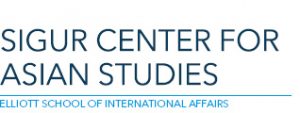
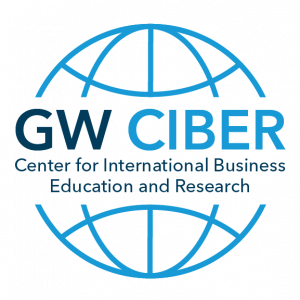
 Kathryn Olivarius is an Assistant Professor of History at Stanford University, where she has taught since 2017. Her research and teaching focus on slavery’s rise and fall in the American South and the wider Atlantic World, disease in the nineteenth century, the history of race and ethnicity, and the social upheaval of the Age of Revolutions. Last year, she was awarded Stanford’s Phi Beta Kappa teaching prize for undergraduate teaching. Before moving to California, she was a Past and Present postdoctoral fellow at the Institute for Historical Research in London. Her book entitled Necropolis: Disease, Power, and Capitalism in the Cotton Kingdom will be published by Harvard University Press in Fall 2021. Her article “Immunity, Power, and Belonging in Antebellum New Orleans,” was published by the American Historical Review last year.
Kathryn Olivarius is an Assistant Professor of History at Stanford University, where she has taught since 2017. Her research and teaching focus on slavery’s rise and fall in the American South and the wider Atlantic World, disease in the nineteenth century, the history of race and ethnicity, and the social upheaval of the Age of Revolutions. Last year, she was awarded Stanford’s Phi Beta Kappa teaching prize for undergraduate teaching. Before moving to California, she was a Past and Present postdoctoral fellow at the Institute for Historical Research in London. Her book entitled Necropolis: Disease, Power, and Capitalism in the Cotton Kingdom will be published by Harvard University Press in Fall 2021. Her article “Immunity, Power, and Belonging in Antebellum New Orleans,” was published by the American Historical Review last year. Martin Saavedra is an Associate Professor of Economics at Oberlin College and earned his PhD in Economics from the University of Pittsburgh in 2014. He primarily works in the fields of economic history, health economics, and labor economics, and his research focuses on the economics of infectious disease, infant health, and the WW2 internment of Japanese Americans. His work has been published in the Journal of Economic History, Explorations in Economic History, the Journal of Economic Literature, among others.
Martin Saavedra is an Associate Professor of Economics at Oberlin College and earned his PhD in Economics from the University of Pittsburgh in 2014. He primarily works in the fields of economic history, health economics, and labor economics, and his research focuses on the economics of infectious disease, infant health, and the WW2 internment of Japanese Americans. His work has been published in the Journal of Economic History, Explorations in Economic History, the Journal of Economic Literature, among others. Dayna Bowen Matthew, JD, PhD, is the Dean and Harold H. Greene Professor of Law at the George Washington University Law School. Dean Matthew is a leader in public health and civil rights law who focuses on racial disparities in health care. She joined the UVA Law faculty in 2017 and is the author of the book Just Medicine: A Cure for Racial Inequality in American Health Care. At UVA, she served as Co-Founder and Inaugural Director of The Equity Center, a transdisciplinary research center that seeks to build better relationships between UVA and the Charlottesville community through community-engaged scholarship that tangibly redresses racial and socioeconomic inequality.
Dayna Bowen Matthew, JD, PhD, is the Dean and Harold H. Greene Professor of Law at the George Washington University Law School. Dean Matthew is a leader in public health and civil rights law who focuses on racial disparities in health care. She joined the UVA Law faculty in 2017 and is the author of the book Just Medicine: A Cure for Racial Inequality in American Health Care. At UVA, she served as Co-Founder and Inaugural Director of The Equity Center, a transdisciplinary research center that seeks to build better relationships between UVA and the Charlottesville community through community-engaged scholarship that tangibly redresses racial and socioeconomic inequality.
 Bina Agarwal is Professor of Development Economics and Environment at the Global Development Institute, University of Manchester, UK, and former Professor and Director, Institute of Economic Growth, Delhi. She has been President, International Society for Ecological Economics; Vice-President, International Economic Association; President, International Society for Feminist Economics; and held distinguished positions at the Universities of Cambridge, Harvard, Princeton, Michigan, Minnesota, and the New York University School of Law. Dr. Agarwal’s publications include the multiple award-winning book, A Field of One’s Own: Gender and Land Rights in South Asia (Cambridge University Press, 1994), Gender and Green Governance (OUP, 2010) and Gender Challenges (OUP, 2016), a three volume compendium of her selected papers on Agriculture, Property, and the Environment. Her pioneering work on gender inequality in property and land and on environmental governance, has had global impact. Her many awards include a Padma Shri, 2008; book prizes; the Leontief Prize 2010; Louis Malassis Scientific Prize 2017; and the International Balzan Prize, 2017.
Bina Agarwal is Professor of Development Economics and Environment at the Global Development Institute, University of Manchester, UK, and former Professor and Director, Institute of Economic Growth, Delhi. She has been President, International Society for Ecological Economics; Vice-President, International Economic Association; President, International Society for Feminist Economics; and held distinguished positions at the Universities of Cambridge, Harvard, Princeton, Michigan, Minnesota, and the New York University School of Law. Dr. Agarwal’s publications include the multiple award-winning book, A Field of One’s Own: Gender and Land Rights in South Asia (Cambridge University Press, 1994), Gender and Green Governance (OUP, 2010) and Gender Challenges (OUP, 2016), a three volume compendium of her selected papers on Agriculture, Property, and the Environment. Her pioneering work on gender inequality in property and land and on environmental governance, has had global impact. Her many awards include a Padma Shri, 2008; book prizes; the Leontief Prize 2010; Louis Malassis Scientific Prize 2017; and the International Balzan Prize, 2017. Nora Lustig is Samuel Z. Stone Professor of Latin American Economics and the founding Director of the Commitment to Equity Institute (CEQ) at Tulane University. She is also a Nonresident Senior Fellow at the Brookings Institution, the Center for Global Development and the Inter-American Dialogue. Professor Lustig’s research focuses on economic development, inequality and social policies with emphasis on Latin America. Her recent publication Commitment to Equity Handbook: Estimating the Impact of Fiscal Policy on Inequality and Poverty is a step-by-step guide to assessing the impact of taxation and social spending on inequality and poverty in developing countries. Prof. Lustig is a founding member and President Emeritus of the Latin American and Caribbean Economic Association (LACEA) and was a co-director of the World Bank’s World Development Report 2000, Attacking Poverty. She serves on the editorial board of the Journal of Economic Inequality and is a member of the Society for the Study of Economic Inequality’s Executive Council. Prof. Lustig served on the Atkinson Commission on Poverty, the High-level Group on Measuring Economic Performance and Social Progress, and the G20 Eminent Persons Group on Global Financial Governance. She received her doctorate in Economics from the University of California, Berkeley.
Nora Lustig is Samuel Z. Stone Professor of Latin American Economics and the founding Director of the Commitment to Equity Institute (CEQ) at Tulane University. She is also a Nonresident Senior Fellow at the Brookings Institution, the Center for Global Development and the Inter-American Dialogue. Professor Lustig’s research focuses on economic development, inequality and social policies with emphasis on Latin America. Her recent publication Commitment to Equity Handbook: Estimating the Impact of Fiscal Policy on Inequality and Poverty is a step-by-step guide to assessing the impact of taxation and social spending on inequality and poverty in developing countries. Prof. Lustig is a founding member and President Emeritus of the Latin American and Caribbean Economic Association (LACEA) and was a co-director of the World Bank’s World Development Report 2000, Attacking Poverty. She serves on the editorial board of the Journal of Economic Inequality and is a member of the Society for the Study of Economic Inequality’s Executive Council. Prof. Lustig served on the Atkinson Commission on Poverty, the High-level Group on Measuring Economic Performance and Social Progress, and the G20 Eminent Persons Group on Global Financial Governance. She received her doctorate in Economics from the University of California, Berkeley. Guido Neidhöfer is an advanced researcher in the Labor Markets and Human Resources department at ZEW Mannheim, Germany, as well as a fellow at the College for Interdisciplinary Educational Research (CIDER), visiting scholar at the Center for Distributive, Labor and Social Studies (CEDLAS) of the National University of La Plata, and an associated researcher of the Centro de Estudios para el Desarrollo Humano (CEDH) of the Universidad de San Andres in Argentina. His research focuses on the causes and consequences of economic inequality, social mobility, education and migration.
Guido Neidhöfer is an advanced researcher in the Labor Markets and Human Resources department at ZEW Mannheim, Germany, as well as a fellow at the College for Interdisciplinary Educational Research (CIDER), visiting scholar at the Center for Distributive, Labor and Social Studies (CEDLAS) of the National University of La Plata, and an associated researcher of the Centro de Estudios para el Desarrollo Humano (CEDH) of the Universidad de San Andres in Argentina. His research focuses on the causes and consequences of economic inequality, social mobility, education and migration. Stephen B. Kaplan is an Associate Professor of Political Science and International Affairs. Professor Kaplan’s research and teaching interests focus on the frontiers of international and comparative political economy, where he specializes in the political economy of global finance and development, the rise of China in the Western Hemisphere, and Latin American politics.
Stephen B. Kaplan is an Associate Professor of Political Science and International Affairs. Professor Kaplan’s research and teaching interests focus on the frontiers of international and comparative political economy, where he specializes in the political economy of global finance and development, the rise of China in the Western Hemisphere, and Latin American politics. Dr. Michael C. Wolfson received his B.Sc with honours from University of Toronto jointly in mathematics, computer science and economics in 1971, and then a Ph.D. from Cambridge in economics in 1977. He retired as Assistant Chief Statistician, Analysis and Development (which included the Health Statistics program and the central R&D function) at Statistics Canada in 2009. He was awarded a Canada Research Chair in Population Health Modeling in the Faculty of Medicine at the University of Ottawa for 2010-2017. Prior to joining Statistics Canada, he held increasingly senior positions in the Treasury Board Secretariat, the Department of Finance, the Privy Council Office, the House of Commons, and the Deputy Prime Minister’s Office. While a senior public servant, he was also a founding Fellow of the Canadian Institute for Advanced Research Program in Population Health (1988-2003). He is a Fellow of the Canadian Academy of Health Sciences, an elected member of the International Statistical Institute, and a member of the recently created Canadian Statistics Advisory Council.
Dr. Michael C. Wolfson received his B.Sc with honours from University of Toronto jointly in mathematics, computer science and economics in 1971, and then a Ph.D. from Cambridge in economics in 1977. He retired as Assistant Chief Statistician, Analysis and Development (which included the Health Statistics program and the central R&D function) at Statistics Canada in 2009. He was awarded a Canada Research Chair in Population Health Modeling in the Faculty of Medicine at the University of Ottawa for 2010-2017. Prior to joining Statistics Canada, he held increasingly senior positions in the Treasury Board Secretariat, the Department of Finance, the Privy Council Office, the House of Commons, and the Deputy Prime Minister’s Office. While a senior public servant, he was also a founding Fellow of the Canadian Institute for Advanced Research Program in Population Health (1988-2003). He is a Fellow of the Canadian Academy of Health Sciences, an elected member of the International Statistical Institute, and a member of the recently created Canadian Statistics Advisory Council. James E. Foster is the Oliver T. Carr, Jr. Professor of International Affairs, Professor of Economics, and Co-Director of the Institute for International Economic Policy at the George Washington University. He is also a Research Associate at the Oxford Poverty and Human Development Initiative at Oxford University. Professor Foster’s research focuses on welfare economics — using economic tools to evaluate and enhance the wellbeing of people. His joint 1984 Econometrica paper (with Joel Greer and Erik Thorbecke) is one of the most cited papers on poverty. It introduced the FGT Index, which has been used in thousands of studies and was employed in targeting the Progresa CCT program in Mexico. Other research includes work on economic inequality with Amartya Sen; on the distribution of human development with Luis Felipe Lopez-Calva and Miguel Szekely; on multidimensional poverty with Sabina Alkire; and on literacy with Kaushik Basu.
James E. Foster is the Oliver T. Carr, Jr. Professor of International Affairs, Professor of Economics, and Co-Director of the Institute for International Economic Policy at the George Washington University. He is also a Research Associate at the Oxford Poverty and Human Development Initiative at Oxford University. Professor Foster’s research focuses on welfare economics — using economic tools to evaluate and enhance the wellbeing of people. His joint 1984 Econometrica paper (with Joel Greer and Erik Thorbecke) is one of the most cited papers on poverty. It introduced the FGT Index, which has been used in thousands of studies and was employed in targeting the Progresa CCT program in Mexico. Other research includes work on economic inequality with Amartya Sen; on the distribution of human development with Luis Felipe Lopez-Calva and Miguel Szekely; on multidimensional poverty with Sabina Alkire; and on literacy with Kaushik Basu.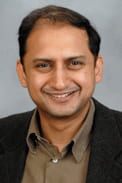 Viral V. Acharya is the C.V. Starr Professor of Economics in the Department of Finance at New York University Stern School of Business (NYU-Stern) and an Academic Advisor to the Federal Reserve Banks of New York and Philadelphia. Viral was a Deputy Governor at the Reserve Bank of India (RBI) during 23rd January 2017 to 23rd July 2019 in charge of Monetary Policy, Financial Markets, Financial Stability, and Research. His speeches while at the RBI will release in the end of July 2020 in the form of a book titled “Quest for Restoring Financial Stability in India” (SAGE Publications India), with a new introductory chapter “Fiscal Dominance: A Theory of Everything in India”. Viral completed Bachelor of Technology in Computer Science and Engineering from Indian Institute of Technology, Mumbai in 1995 and Ph.D. in Finance from NYU-Stern in 2001. Prior to joining Stern, he was at London Business School (2001-2008), the Academic Director of the Coller Institute of Private Equity at LBS (2007-09) and a Senior Houblon-Normal Research Fellow at the Bank of England (Summer 2008). Viral’s primary research interest is in theoretical and empirical analysis of systemic risk of the financial sector, its regulation and its genesis in government-induced distortions, an inquiry that cuts across several other strands of research – credit risk and liquidity risk, their interactions and agency-theoretic foundations, as well as their general equilibrium consequences. He has published articles in the American Economic Review, Journal of Finance, Journal of Financial Economics, Review of Financial Studies, Review of Finance, Journal of Business, Journal of Financial Intermediation, Rand Journal of Economics, Journal of Monetary Economics, Journal of Money, Credit and Banking, and Financial Analysts Journal. He is currently associate editor of the Review of Corporate Finance Studies (RCFS, 2011-) and Review of Finance (2006-), and was an editor of the Journal of Financial Intermediation (2009-12) and associate editor of the Journal of Finance (2011-14).
Viral V. Acharya is the C.V. Starr Professor of Economics in the Department of Finance at New York University Stern School of Business (NYU-Stern) and an Academic Advisor to the Federal Reserve Banks of New York and Philadelphia. Viral was a Deputy Governor at the Reserve Bank of India (RBI) during 23rd January 2017 to 23rd July 2019 in charge of Monetary Policy, Financial Markets, Financial Stability, and Research. His speeches while at the RBI will release in the end of July 2020 in the form of a book titled “Quest for Restoring Financial Stability in India” (SAGE Publications India), with a new introductory chapter “Fiscal Dominance: A Theory of Everything in India”. Viral completed Bachelor of Technology in Computer Science and Engineering from Indian Institute of Technology, Mumbai in 1995 and Ph.D. in Finance from NYU-Stern in 2001. Prior to joining Stern, he was at London Business School (2001-2008), the Academic Director of the Coller Institute of Private Equity at LBS (2007-09) and a Senior Houblon-Normal Research Fellow at the Bank of England (Summer 2008). Viral’s primary research interest is in theoretical and empirical analysis of systemic risk of the financial sector, its regulation and its genesis in government-induced distortions, an inquiry that cuts across several other strands of research – credit risk and liquidity risk, their interactions and agency-theoretic foundations, as well as their general equilibrium consequences. He has published articles in the American Economic Review, Journal of Finance, Journal of Financial Economics, Review of Financial Studies, Review of Finance, Journal of Business, Journal of Financial Intermediation, Rand Journal of Economics, Journal of Monetary Economics, Journal of Money, Credit and Banking, and Financial Analysts Journal. He is currently associate editor of the Review of Corporate Finance Studies (RCFS, 2011-) and Review of Finance (2006-), and was an editor of the Journal of Financial Intermediation (2009-12) and associate editor of the Journal of Finance (2011-14). Liaquat Ahamed is the author of the critically acclaimed best-seller, Lords of Finance: The Bankers Who Broke the World, about central bankers during the Great Depression of 1929-1932. The book won the 2010 Pulitzer Prize for History, the 2010 Council on Foreign Relations Arthur Ross Gold Medal, and the 2009 Financial Times-Goldman Sachs Best Business Book of the Year Award. Ahamed was a professional investment manager for twenty-five years. He has worked at the World Bank in Washington, D.C., and the New York-based partnership of Fischer Francis Trees and Watts, where he served as chief executive. He is currently a director of the Putnam Funds. He is on the board of trustees of the Journal of Philosophy, the Sun Valley Writers’ Conference and a former trustee of the Brookings Institution and the New America Foundation. He has degrees in economics from Harvard and Cambridge.
Liaquat Ahamed is the author of the critically acclaimed best-seller, Lords of Finance: The Bankers Who Broke the World, about central bankers during the Great Depression of 1929-1932. The book won the 2010 Pulitzer Prize for History, the 2010 Council on Foreign Relations Arthur Ross Gold Medal, and the 2009 Financial Times-Goldman Sachs Best Business Book of the Year Award. Ahamed was a professional investment manager for twenty-five years. He has worked at the World Bank in Washington, D.C., and the New York-based partnership of Fischer Francis Trees and Watts, where he served as chief executive. He is currently a director of the Putnam Funds. He is on the board of trustees of the Journal of Philosophy, the Sun Valley Writers’ Conference and a former trustee of the Brookings Institution and the New America Foundation. He has degrees in economics from Harvard and Cambridge. Rakesh Mohan is one of India’s senior-most economic policymakers and an expert on central banking, monetary policy, infrastructure and urban affairs. Most recently he was executive director at the International Monetary Fund in Washington, D.C., representing India, Sri Lanka, Bangladesh and Bhutan, and chairman, National Transport Development Policy Committee, Government of India, in the rank of a Minister of State. He is also a former deputy governor of the Reserve Bank of India. As deputy governor he was in charge of monetary policy, financial markets, economic research and statistics. In addition to serving in various posts for the Indian government, including representing India in a variety of international forums such as Basel and G20, Mohan has worked for the World Bank and headed prestigious research institutes. He is also Senior Advisor to the McKinsey Global Institute and Distinguished Fellow of Brookings India. Mohan has written extensively on urban economics, urban development, Indian economic policy reforms, monetary policy and central banking.
Rakesh Mohan is one of India’s senior-most economic policymakers and an expert on central banking, monetary policy, infrastructure and urban affairs. Most recently he was executive director at the International Monetary Fund in Washington, D.C., representing India, Sri Lanka, Bangladesh and Bhutan, and chairman, National Transport Development Policy Committee, Government of India, in the rank of a Minister of State. He is also a former deputy governor of the Reserve Bank of India. As deputy governor he was in charge of monetary policy, financial markets, economic research and statistics. In addition to serving in various posts for the Indian government, including representing India in a variety of international forums such as Basel and G20, Mohan has worked for the World Bank and headed prestigious research institutes. He is also Senior Advisor to the McKinsey Global Institute and Distinguished Fellow of Brookings India. Mohan has written extensively on urban economics, urban development, Indian economic policy reforms, monetary policy and central banking.
 Sabina Alkire directs the Oxford Poverty and Human Development Initiative (OPHI), a research centre within the Oxford Department of International Development, University of Oxford. Dr Alkire works on a new approach to measuring poverty and well-being that goes beyond the traditional focus on income and growth. This multidimensional approach to measurement includes social goals, such as health, education, nutrition, standard of living and other valuable aspects of life. She devised a new method for measuring multidimensional poverty with her colleague James Foster (OPHI Research Associate and Professor of Economics at George Washington University) that has advantages over other poverty measures and has been adopted by the Mexican Government, the Bhutanese Government in their ‘Gross National Happiness Index’ and the United Nations Development Programme. Dr Alkire has been called upon to provide input and advice to several initiatives seeking to take a broader approach to well-being rather than just economic growth, for example, the Commission on the Measurement of Economic Performance and Social Progress (instigated by President Sarkozy); the United Nations Human Development Programme Human Development Report Office; the European Commission; and the UK’s Department for International Development.
Sabina Alkire directs the Oxford Poverty and Human Development Initiative (OPHI), a research centre within the Oxford Department of International Development, University of Oxford. Dr Alkire works on a new approach to measuring poverty and well-being that goes beyond the traditional focus on income and growth. This multidimensional approach to measurement includes social goals, such as health, education, nutrition, standard of living and other valuable aspects of life. She devised a new method for measuring multidimensional poverty with her colleague James Foster (OPHI Research Associate and Professor of Economics at George Washington University) that has advantages over other poverty measures and has been adopted by the Mexican Government, the Bhutanese Government in their ‘Gross National Happiness Index’ and the United Nations Development Programme. Dr Alkire has been called upon to provide input and advice to several initiatives seeking to take a broader approach to well-being rather than just economic growth, for example, the Commission on the Measurement of Economic Performance and Social Progress (instigated by President Sarkozy); the United Nations Human Development Programme Human Development Report Office; the European Commission; and the UK’s Department for International Development. Ajay Chhibber is Distinguished Visiting Scholar, Institute of International Economic Policy, Elliott School of International Affairs, George Washington University and Non-Resident Senior Fellow, the Atlantic Council, Washington DC. He is Chief Economic Advisor, Federation of Indian Chambers of Commerce and Industry (FICCI). He was earlier the first Director General ( Minister of State) , Independent Evaluation Office, Government of India and Distinguished Visiting Professor at the National Institute of Public Finance and Policy (NIPFP), India – affiliated institute of the Ministry of Finance – where he completed a major study on India’s Public Sector Enterprises. He held senior positions at the UN as Assistant Secretary General and Assistant Administrator, UNDP and managed their program for Asia and the Pacific. At the World Bank he served as Country Director in Turkey and Vietnam and Division Chief for Indonesia and the Pacific and Lead Economist, West Africa Department. He was also Director of the 1997 World Development Report on the Role of the State. He also worked in the World Bank’s Research Department, as Advisor to the Chief Economist of the World Bank and at the Public Economics Division. He has a Ph.D from Stanford University, a Masters from the Delhi School of Economics. He also has attended advanced management programs at the Harvard Business School, Harvard University and INSEAD, France. He taught at Georgetown University and at the University of Delhi. He has published widely including 5 books in development economics, and is a contributor (columnist) to several newspapers. He is now writing a book on “India: A Reset for the 21st Century” under contract with Harper-Collins.
Ajay Chhibber is Distinguished Visiting Scholar, Institute of International Economic Policy, Elliott School of International Affairs, George Washington University and Non-Resident Senior Fellow, the Atlantic Council, Washington DC. He is Chief Economic Advisor, Federation of Indian Chambers of Commerce and Industry (FICCI). He was earlier the first Director General ( Minister of State) , Independent Evaluation Office, Government of India and Distinguished Visiting Professor at the National Institute of Public Finance and Policy (NIPFP), India – affiliated institute of the Ministry of Finance – where he completed a major study on India’s Public Sector Enterprises. He held senior positions at the UN as Assistant Secretary General and Assistant Administrator, UNDP and managed their program for Asia and the Pacific. At the World Bank he served as Country Director in Turkey and Vietnam and Division Chief for Indonesia and the Pacific and Lead Economist, West Africa Department. He was also Director of the 1997 World Development Report on the Role of the State. He also worked in the World Bank’s Research Department, as Advisor to the Chief Economist of the World Bank and at the Public Economics Division. He has a Ph.D from Stanford University, a Masters from the Delhi School of Economics. He also has attended advanced management programs at the Harvard Business School, Harvard University and INSEAD, France. He taught at Georgetown University and at the University of Delhi. He has published widely including 5 books in development economics, and is a contributor (columnist) to several newspapers. He is now writing a book on “India: A Reset for the 21st Century” under contract with Harper-Collins. Monica Pinilla-Roncancio is a Physiotherapist with a Master’s degree in Economics from Universidad del Rosario. She has also a Master’s degree in Health Economics, Policy and Law from Erasmus University Rotterdam, Netherlands. She finished her PhD in Social Policy at the University of Birmingham, UK. From 2016 to 2018 she was as a Postdoctoral Researcher at Universidad de los Andes and currently is an Assistant Professor at the same university. She is the Co-director of Metrics and Policy at OPHI and has been working in OPHI since 2014. She coordinates the work in Latin America, East Asia and some countries in Africa and Middle East. Her main research interest are disability, multidimensional poverty, inequality and health economics.
Monica Pinilla-Roncancio is a Physiotherapist with a Master’s degree in Economics from Universidad del Rosario. She has also a Master’s degree in Health Economics, Policy and Law from Erasmus University Rotterdam, Netherlands. She finished her PhD in Social Policy at the University of Birmingham, UK. From 2016 to 2018 she was as a Postdoctoral Researcher at Universidad de los Andes and currently is an Assistant Professor at the same university. She is the Co-director of Metrics and Policy at OPHI and has been working in OPHI since 2014. She coordinates the work in Latin America, East Asia and some countries in Africa and Middle East. Her main research interest are disability, multidimensional poverty, inequality and health economics. Frances Stewart was Director of ODID from 1993-2003 and Director of the Centre for Research on Inequality, Human Security and Ethnicity (CRISE) at the department between 2003 and 2010. She has a DPhil from the University of Oxford and an honorary doctorate from the University of Sussex. Among many publications, she is coauthor of UNICEF’s influential study, Adjustment with a Human Face (OUP 1987); War and Underdevelopment (OUP 2001); and leading author and editor of Horizontal Inequalities and Conflict: Understanding Group Violence in Multiethnic Societies (Palgrave, 2008). She has directed a number of major research programmes including several financed by the UK Government’s Department for International Development, and others by the Swedish Development Agency and the Carnegie Corporation. An Emeritus Fellow of Somerville College, Oxford, Frances has acted as consultant for early Human Development Reports; she has been President of the Human Development and Capability Association; President of the British and Irish Development Studies Association; Chair of the United Nations Committee on Development Policy and Vice-Chair of the Board of the International Food Policy Research Institute. She received the Leontief prize in 2013 for advancing the frontiers of economic thought from Tufts University. She was given the UNDP’s Mahbub ul Haq award for her lifetime’s achievements in promoting human development in 2009; and named one of fifty outstanding technological leaders for 2003 by Scientific American (Policy Leader in Economic Development Strategies for promoting anti-poverty campaigns to help quell armed conflicts in developing countries).
Frances Stewart was Director of ODID from 1993-2003 and Director of the Centre for Research on Inequality, Human Security and Ethnicity (CRISE) at the department between 2003 and 2010. She has a DPhil from the University of Oxford and an honorary doctorate from the University of Sussex. Among many publications, she is coauthor of UNICEF’s influential study, Adjustment with a Human Face (OUP 1987); War and Underdevelopment (OUP 2001); and leading author and editor of Horizontal Inequalities and Conflict: Understanding Group Violence in Multiethnic Societies (Palgrave, 2008). She has directed a number of major research programmes including several financed by the UK Government’s Department for International Development, and others by the Swedish Development Agency and the Carnegie Corporation. An Emeritus Fellow of Somerville College, Oxford, Frances has acted as consultant for early Human Development Reports; she has been President of the Human Development and Capability Association; President of the British and Irish Development Studies Association; Chair of the United Nations Committee on Development Policy and Vice-Chair of the Board of the International Food Policy Research Institute. She received the Leontief prize in 2013 for advancing the frontiers of economic thought from Tufts University. She was given the UNDP’s Mahbub ul Haq award for her lifetime’s achievements in promoting human development in 2009; and named one of fifty outstanding technological leaders for 2003 by Scientific American (Policy Leader in Economic Development Strategies for promoting anti-poverty campaigns to help quell armed conflicts in developing countries). Ricardo Nogales is a Research Officer at OPHI since May 2018. He holds a BSc. and a MSc. In Economics and a PhD in Econometrics, all from the University of Geneva (Switzerland). Before joining OPHI, he was a Professor of Economics at the School of Economics and Finance of the Universidad Privada Boliviana in Bolivia and a Research Assistant at the United Nations Research Institute for Social Development (UNRISD) in Switzerland. He carried on research activities in the field of development economics, poverty reduction and human development with the IDB, UNDP, ILO, World Bank, Oxfam and IDRC. He has been an external consultant for several public organizations in Bolivia, including the Program for Strategic Research, the Central Bank, the Institute for Agricultural Insurance and the Ministry of Economics and Public Finance.
Ricardo Nogales is a Research Officer at OPHI since May 2018. He holds a BSc. and a MSc. In Economics and a PhD in Econometrics, all from the University of Geneva (Switzerland). Before joining OPHI, he was a Professor of Economics at the School of Economics and Finance of the Universidad Privada Boliviana in Bolivia and a Research Assistant at the United Nations Research Institute for Social Development (UNRISD) in Switzerland. He carried on research activities in the field of development economics, poverty reduction and human development with the IDB, UNDP, ILO, World Bank, Oxfam and IDRC. He has been an external consultant for several public organizations in Bolivia, including the Program for Strategic Research, the Central Bank, the Institute for Agricultural Insurance and the Ministry of Economics and Public Finance. Dean Jolliffe is a Lead Economist in the Development Data Group of the World Bank and member of the LSMS-ISA team. He has extensive experience in the design and implementation of household surveys and is currently managing ongoing LSMS-ISA work in Ethiopia. He has also worked in the South Asia region at the Bank on poverty assessments for Afghanistan, Bangladesh and Nepal. Previously, he was a Research Economist at the Economic Research Service of USDA, an Adjunct Professor at the Johns Hopkins University School of Advanced International Studies, an Assistant Professor at the Center for Economic Research and Graduate Education in Prague, and a Post-doctoral Fellow at the International Food Policy Research Institute. Dean holds appointments as a Research Fellow with the Institute for the Study of Labor in Bonn, and as a Research Affiliate with the National Poverty Center at the University of Michigan. He received his Ph.D. in economics from Princeton University.
Dean Jolliffe is a Lead Economist in the Development Data Group of the World Bank and member of the LSMS-ISA team. He has extensive experience in the design and implementation of household surveys and is currently managing ongoing LSMS-ISA work in Ethiopia. He has also worked in the South Asia region at the Bank on poverty assessments for Afghanistan, Bangladesh and Nepal. Previously, he was a Research Economist at the Economic Research Service of USDA, an Adjunct Professor at the Johns Hopkins University School of Advanced International Studies, an Assistant Professor at the Center for Economic Research and Graduate Education in Prague, and a Post-doctoral Fellow at the International Food Policy Research Institute. Dean holds appointments as a Research Fellow with the Institute for the Study of Labor in Bonn, and as a Research Affiliate with the National Poverty Center at the University of Michigan. He received his Ph.D. in economics from Princeton University. James Foster is the Oliver T. Carr, Jr. Professor of International Affairs, Professor of Economics, and Co-Director of the Institute for International Economic Policy at the George Washington University. He is also a Research Associate at the Oxford Poverty and Human Development Initiative at Oxford University. Professor Foster’s research focuses on welfare economics — using economic tools to evaluate and enhance the wellbeing of people. His work underlies many well-known social indices including the global Multidimensional Poverty Index (MPI) published annually by the UNDP in the Human Development Report, dozens of national MPIs used to guide domestic policy against poverty, the Women’s Empowerment in Agriculture Index (WEAI) at USAID, the Gross National Happiness Index of Bhutan, the Better Jobs Index of the InterAmerican Development Bank, and the Statistical Performance Index of the World Bank. Prof. Foster received his PhD in Economics from Cornell University and has a Doctorate Honoris Causa from Universidad Autónoma del Estado Hidalgo (Mexico).
James Foster is the Oliver T. Carr, Jr. Professor of International Affairs, Professor of Economics, and Co-Director of the Institute for International Economic Policy at the George Washington University. He is also a Research Associate at the Oxford Poverty and Human Development Initiative at Oxford University. Professor Foster’s research focuses on welfare economics — using economic tools to evaluate and enhance the wellbeing of people. His work underlies many well-known social indices including the global Multidimensional Poverty Index (MPI) published annually by the UNDP in the Human Development Report, dozens of national MPIs used to guide domestic policy against poverty, the Women’s Empowerment in Agriculture Index (WEAI) at USAID, the Gross National Happiness Index of Bhutan, the Better Jobs Index of the InterAmerican Development Bank, and the Statistical Performance Index of the World Bank. Prof. Foster received his PhD in Economics from Cornell University and has a Doctorate Honoris Causa from Universidad Autónoma del Estado Hidalgo (Mexico).
 Maggie Chen is Professor of Economics and International Affairs at George Washington University. She has served as Director of GW’s Institute for International Economic Policy and worked as an economist in the research department of the World Bank and a consultant for the World Bank, the International Finance Corporation, the Inter-American Development Bank, and the U.S. Congressional Budget Office. Professor Chen’s research areas include multinational firms, international trade, and regional trade agreements. Her work has been published in academic journals such as the Review of Economics and Statistics, American Economic Journal: Applied Economics, American Economic Journal: Economic Policy, Journal of International Economics, and Journal of Development Economics. She is a co-editor of Economic Inquiry and an associate editor of Economic Modeling.
Maggie Chen is Professor of Economics and International Affairs at George Washington University. She has served as Director of GW’s Institute for International Economic Policy and worked as an economist in the research department of the World Bank and a consultant for the World Bank, the International Finance Corporation, the Inter-American Development Bank, and the U.S. Congressional Budget Office. Professor Chen’s research areas include multinational firms, international trade, and regional trade agreements. Her work has been published in academic journals such as the Review of Economics and Statistics, American Economic Journal: Applied Economics, American Economic Journal: Economic Policy, Journal of International Economics, and Journal of Development Economics. She is a co-editor of Economic Inquiry and an associate editor of Economic Modeling.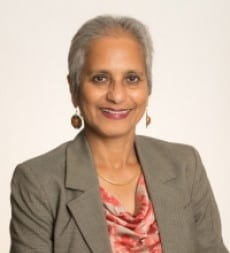 Deepa Ollapally is a political scientist specializing in Indian foreign policy, India-China relations, and Asian regional and maritime security. She is Research Professor of International Affairs and the Associate Director of the Sigur Center. She also directs the Rising Powers Initiative, a major research program that tracks and analyzes foreign policy debates in aspiring powers of Asia and Eurasia. Dr. Ollapally is currently working on a funded book, Big Power Competition for Influence in the Indian Ocean Region, which assesses the shifting patterns of geopolitical influence by major powers in the region since 2005 and the drivers of these changes. She is the author of five books including Worldviews of Aspiring Powers (Oxford, 2012) and The Politics of Extremism in South Asia (Cambridge, 2008). Her most recent books are two edited volumes, Energy Security in Asia and Eurasia (Routledge, 2017), and Nuclear Debates in Asia: The Role of Geopolitics and Domestic Processes (Rowman & Littlefield, 2016). Dr. Ollapally has received grants from the Carnegie Corporation, MacArthur Foundation, Smith Richardson Foundation, Ford Foundation, the Rockefeller Foundation, and the Asia Foundation for projects related to India and Asia. Previously, she was Associate Professor at Swarthmore College and has been a Visiting Professor at Kings College, London and at Columbia University. Dr. Ollapally also held senior positions in the policy world including the US Institute of Peace, Washington DC and the National Institute of Advanced Studies, Bangalore, India. She is a frequent commentator in the media, including appearances on CNN, BBC, CBS, Diane Rehm Show and Reuters TV. She holds a Ph.D. in Political Science from Columbia University.
Deepa Ollapally is a political scientist specializing in Indian foreign policy, India-China relations, and Asian regional and maritime security. She is Research Professor of International Affairs and the Associate Director of the Sigur Center. She also directs the Rising Powers Initiative, a major research program that tracks and analyzes foreign policy debates in aspiring powers of Asia and Eurasia. Dr. Ollapally is currently working on a funded book, Big Power Competition for Influence in the Indian Ocean Region, which assesses the shifting patterns of geopolitical influence by major powers in the region since 2005 and the drivers of these changes. She is the author of five books including Worldviews of Aspiring Powers (Oxford, 2012) and The Politics of Extremism in South Asia (Cambridge, 2008). Her most recent books are two edited volumes, Energy Security in Asia and Eurasia (Routledge, 2017), and Nuclear Debates in Asia: The Role of Geopolitics and Domestic Processes (Rowman & Littlefield, 2016). Dr. Ollapally has received grants from the Carnegie Corporation, MacArthur Foundation, Smith Richardson Foundation, Ford Foundation, the Rockefeller Foundation, and the Asia Foundation for projects related to India and Asia. Previously, she was Associate Professor at Swarthmore College and has been a Visiting Professor at Kings College, London and at Columbia University. Dr. Ollapally also held senior positions in the policy world including the US Institute of Peace, Washington DC and the National Institute of Advanced Studies, Bangalore, India. She is a frequent commentator in the media, including appearances on CNN, BBC, CBS, Diane Rehm Show and Reuters TV. She holds a Ph.D. in Political Science from Columbia University.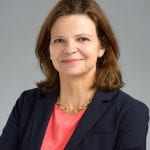 Jennifer G. Cooke is director of the Institute for African Studies at The George Washington University Elliott School of International Affairs. The Institute serves as central for research, scholarly discussion, and debate on issues relevant to Africa. She is a professor of practice in international affairs, teaching courses on U.S. Policy Toward Africa and Transnational Security Threats in Africa. Cooke joined George Washington University in August 2018, after 18 years as director of the Africa Program at the Center for Strategic and International Studies (CSIS), where she led research and analysis on political, economic, and security dynamics in Africa. While at CSIS, Cooke directed projects on a wide range of African issues, including on violent extremist organizations in the Sahel and Lake Chad Basin, China’s growing role in Africa, democracy and elections in Nigeria, religion and state authority in Africa, “stress-testing” state stability in Africa, Africa’s changing energy landscape, and more. She is a frequent writer and lecturer on U.S.-Africa policy and has provided briefing, commentary, and testimony to the media, US Congress, AFRICOM leadership and the U.S. military. She has traveled widely in Africa and has been an election observer in Sierra Leone, Ghana, Liberia, Mali, and Nigeria. As a teenager, she lived in Cote d’Ivoire and the Central African Republic. She holds an M.A. in African studies and international economics from the Johns Hopkins University School of Advanced International Studies (SAIS) and a B.A. in government, magna cum laude, from Harvard University.
Jennifer G. Cooke is director of the Institute for African Studies at The George Washington University Elliott School of International Affairs. The Institute serves as central for research, scholarly discussion, and debate on issues relevant to Africa. She is a professor of practice in international affairs, teaching courses on U.S. Policy Toward Africa and Transnational Security Threats in Africa. Cooke joined George Washington University in August 2018, after 18 years as director of the Africa Program at the Center for Strategic and International Studies (CSIS), where she led research and analysis on political, economic, and security dynamics in Africa. While at CSIS, Cooke directed projects on a wide range of African issues, including on violent extremist organizations in the Sahel and Lake Chad Basin, China’s growing role in Africa, democracy and elections in Nigeria, religion and state authority in Africa, “stress-testing” state stability in Africa, Africa’s changing energy landscape, and more. She is a frequent writer and lecturer on U.S.-Africa policy and has provided briefing, commentary, and testimony to the media, US Congress, AFRICOM leadership and the U.S. military. She has traveled widely in Africa and has been an election observer in Sierra Leone, Ghana, Liberia, Mali, and Nigeria. As a teenager, she lived in Cote d’Ivoire and the Central African Republic. She holds an M.A. in African studies and international economics from the Johns Hopkins University School of Advanced International Studies (SAIS) and a B.A. in government, magna cum laude, from Harvard University. Andrew Tiffin is a senior economist at the IMF, working in the regional studies division of the Fund’s African Department. He is also keenly involved in the effort to incorporate artificial intelligence/machine-learning techniques into the standard analytical toolkit of the Fund. Previously, he has worked on Middle Eastern countries, with a particular interest in refugee issues in Jordan and Lebanon, as well as numerous countries in Europe–he was part of the Italy team during the debt crisis of 2012, and part of the Russia team for the global financial crisis of 2008. Raised in Sydney, Andrew is an Australian national. He received his post-graduate training at Princeton University, where he obtained both a Ph.D. in economics and an M.P.A. in international relations. In addition to his work with the Fund, Andrew has held positions at the Reserve Bank of Australia, and with the Australian Government.
Andrew Tiffin is a senior economist at the IMF, working in the regional studies division of the Fund’s African Department. He is also keenly involved in the effort to incorporate artificial intelligence/machine-learning techniques into the standard analytical toolkit of the Fund. Previously, he has worked on Middle Eastern countries, with a particular interest in refugee issues in Jordan and Lebanon, as well as numerous countries in Europe–he was part of the Italy team during the debt crisis of 2012, and part of the Russia team for the global financial crisis of 2008. Raised in Sydney, Andrew is an Australian national. He received his post-graduate training at Princeton University, where he obtained both a Ph.D. in economics and an M.P.A. in international relations. In addition to his work with the Fund, Andrew has held positions at the Reserve Bank of Australia, and with the Australian Government. Louise Fox is an experienced development economist who specializes in strategies for employment creation, opportunity expansion, economic empowerment, and poverty reduction. She has advised governments in the developed and developing world, international organizations, and philanthropic and non-profit organizations on problem diagnosis, strategies for results, and outcome measurement. She held full-time positions at USAID (as Chief Economist) and at the World Bank. She is currently affiliated with the African Growth Initiative at the Brookings Institution and the Blum Center for Developing Economies, University of California, Berkeley. She was previously affiliated with the Overseas Development Institute, where she led a major research project. Louise has published in the areas of inclusive growth, structural transformation, youth employment, the political economy of poverty reduction, gender and women’s economic empowerment, employment, labor markets, and labor regulation, pension reform, reform of child welfare systems, social protection, effective public expenditures in the social sectors, and female-headed households and child welfare. Her most recent book was Youth Employment in Sub-Saharan Africa, published by the World Bank in 2014.
Louise Fox is an experienced development economist who specializes in strategies for employment creation, opportunity expansion, economic empowerment, and poverty reduction. She has advised governments in the developed and developing world, international organizations, and philanthropic and non-profit organizations on problem diagnosis, strategies for results, and outcome measurement. She held full-time positions at USAID (as Chief Economist) and at the World Bank. She is currently affiliated with the African Growth Initiative at the Brookings Institution and the Blum Center for Developing Economies, University of California, Berkeley. She was previously affiliated with the Overseas Development Institute, where she led a major research project. Louise has published in the areas of inclusive growth, structural transformation, youth employment, the political economy of poverty reduction, gender and women’s economic empowerment, employment, labor markets, and labor regulation, pension reform, reform of child welfare systems, social protection, effective public expenditures in the social sectors, and female-headed households and child welfare. Her most recent book was Youth Employment in Sub-Saharan Africa, published by the World Bank in 2014. Seung Mo Choi is a Senior Economist working on regional surveillance in the IMF’s African Department. He has worked on banking crises, financial market policies, climate change, low-income country issues, and capacity development, including in the IMF’s European Department and in the Institute for Capacity Development. His research has been published in economics and finance journals such as International Economic Review. Prior to joining the IMF, he worked as an Assistant Professor at Washington State University and obtained a Ph.D. in economics from the University of Chicago and a B.A. in economics from Seoul National University.
Seung Mo Choi is a Senior Economist working on regional surveillance in the IMF’s African Department. He has worked on banking crises, financial market policies, climate change, low-income country issues, and capacity development, including in the IMF’s European Department and in the Institute for Capacity Development. His research has been published in economics and finance journals such as International Economic Review. Prior to joining the IMF, he worked as an Assistant Professor at Washington State University and obtained a Ph.D. in economics from the University of Chicago and a B.A. in economics from Seoul National University. Stephen C. Smith is Professor of Economics and International Affairs at George Washington University. In 2018 he was UNICEF Senior Fellow at the UNICEF Office of Research-Innocenti, Florence, Italy. Smith received his Ph.D. in Economics from Cornell University and has been a Fulbright Research Scholar, a Jean Monnet Research Fellow, a Visiting Fellow at the Brookings Institution, a Nonresident Senior Fellow at Brookings, a Fulbright Senior Specialist, a member of the Advisory Council of BRAC USA, and an Associate Editor of the Journal of Economic Behavior and Organization. He has twice served as Director of the Institute for International Economic Policy at GWU. Smith is the co-author with Michael Todaro of Economic Development (12th Edition, Pearson, 2014). He is also author of Ending Global Poverty: A Guide to What Works (paperback edition Palgrave Macmillan, 2009), and co-editor with Jennifer Brinkerhoff and Hildy Teegen of NGOs and the Millennium Development Goals: Citizen Action to Reduce Poverty (Palgrave Macmillan, 2007). He is also author or coauthor of about 45 professional journal articles and many other publications. Smith’s recent research has focused on extreme poverty and strategies and programs to address it; and on the economics of adaptation and resilience to climate change in low-income countries, emphasizing autonomous adaptation by households and communities and its effects, and adaptation financing.
Stephen C. Smith is Professor of Economics and International Affairs at George Washington University. In 2018 he was UNICEF Senior Fellow at the UNICEF Office of Research-Innocenti, Florence, Italy. Smith received his Ph.D. in Economics from Cornell University and has been a Fulbright Research Scholar, a Jean Monnet Research Fellow, a Visiting Fellow at the Brookings Institution, a Nonresident Senior Fellow at Brookings, a Fulbright Senior Specialist, a member of the Advisory Council of BRAC USA, and an Associate Editor of the Journal of Economic Behavior and Organization. He has twice served as Director of the Institute for International Economic Policy at GWU. Smith is the co-author with Michael Todaro of Economic Development (12th Edition, Pearson, 2014). He is also author of Ending Global Poverty: A Guide to What Works (paperback edition Palgrave Macmillan, 2009), and co-editor with Jennifer Brinkerhoff and Hildy Teegen of NGOs and the Millennium Development Goals: Citizen Action to Reduce Poverty (Palgrave Macmillan, 2007). He is also author or coauthor of about 45 professional journal articles and many other publications. Smith’s recent research has focused on extreme poverty and strategies and programs to address it; and on the economics of adaptation and resilience to climate change in low-income countries, emphasizing autonomous adaptation by households and communities and its effects, and adaptation financing. Preya Sharma is a senior economist in the African Department of the IMF where she is Special Assistant to the Director. Her research has focused on structural transformation, the future of work, and digitalization in sub-Saharan Africa, as well as emerging market crises and development. Before joining the IMF she was the Head of Emerging Markets at HM Treasury in the UK. She holds a Masters in Public Administration in International Development from the Harvard Kennedy School and a BSc in Economics from the London School of Economics.
Preya Sharma is a senior economist in the African Department of the IMF where she is Special Assistant to the Director. Her research has focused on structural transformation, the future of work, and digitalization in sub-Saharan Africa, as well as emerging market crises and development. Before joining the IMF she was the Head of Emerging Markets at HM Treasury in the UK. She holds a Masters in Public Administration in International Development from the Harvard Kennedy School and a BSc in Economics from the London School of Economics.
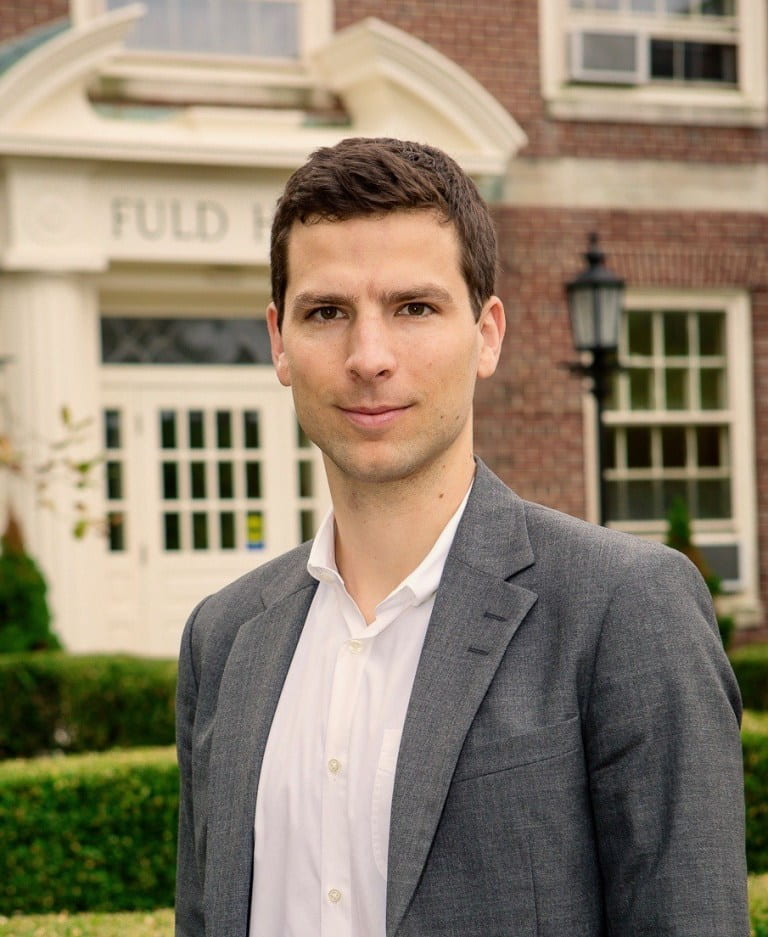


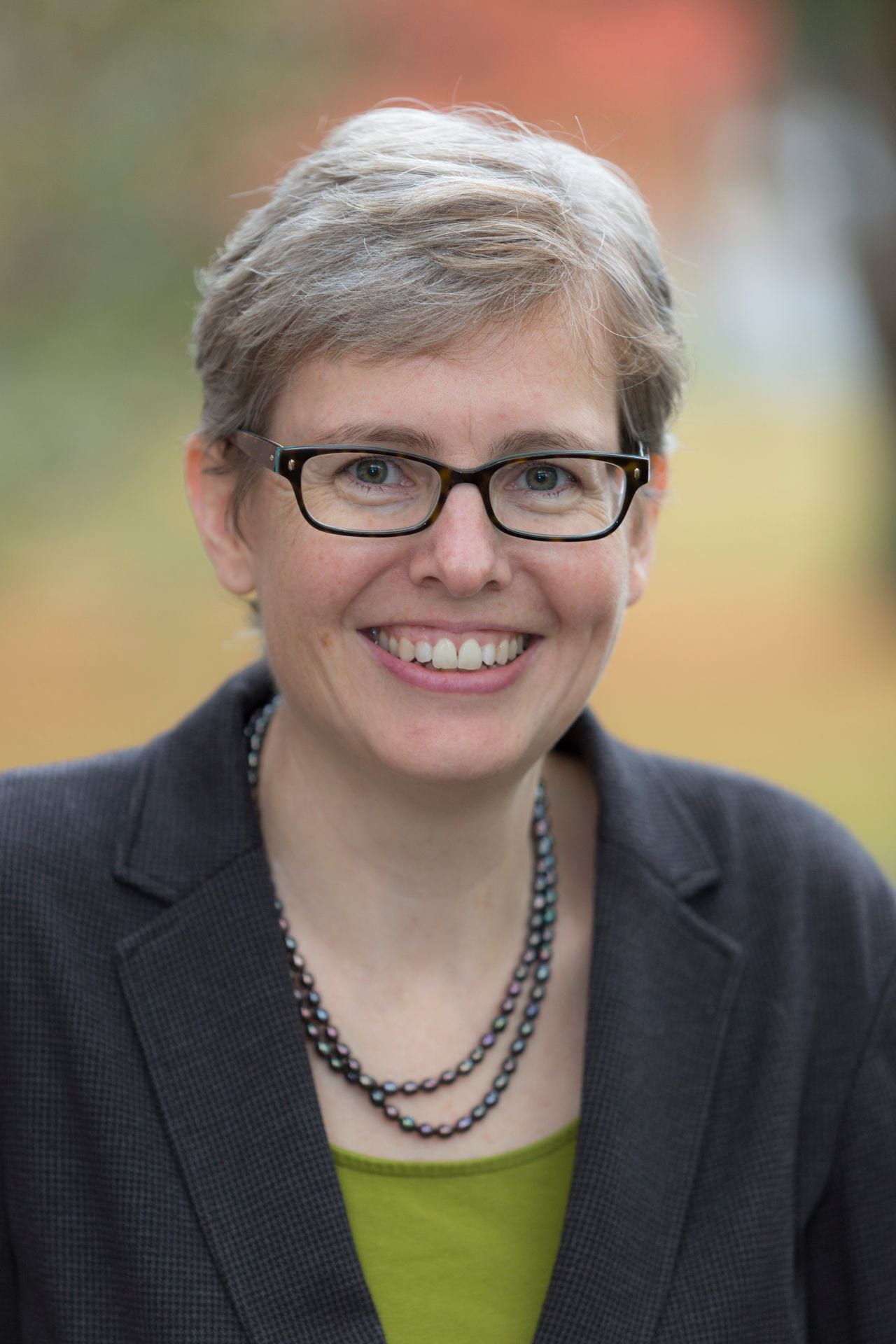




 Steve Hollingworth
Steve Hollingworth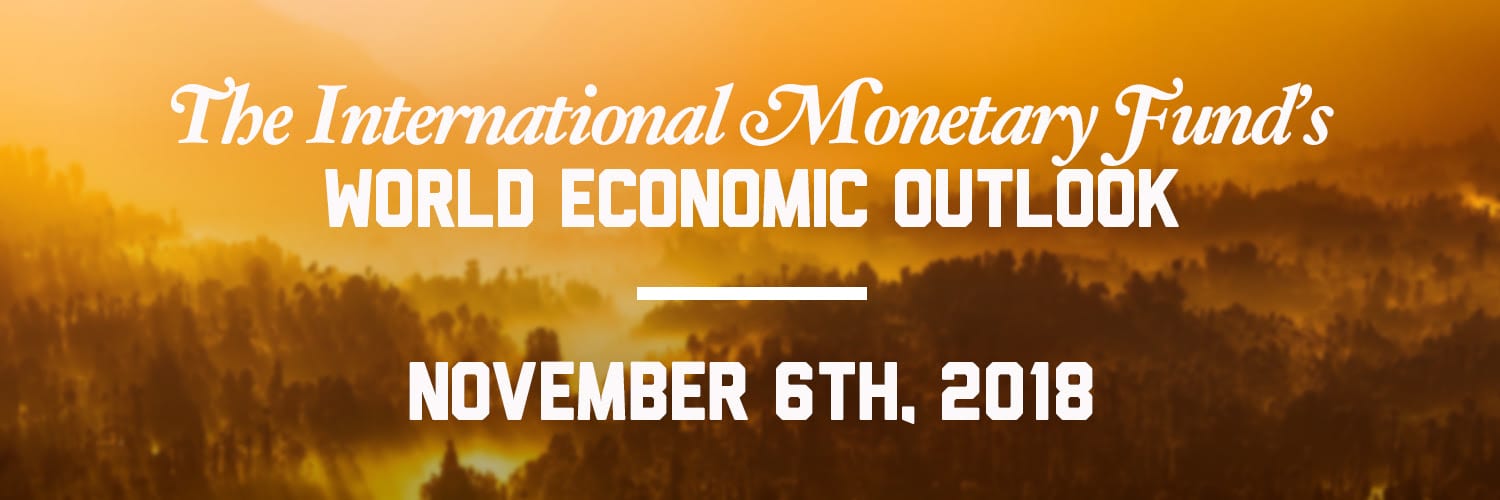
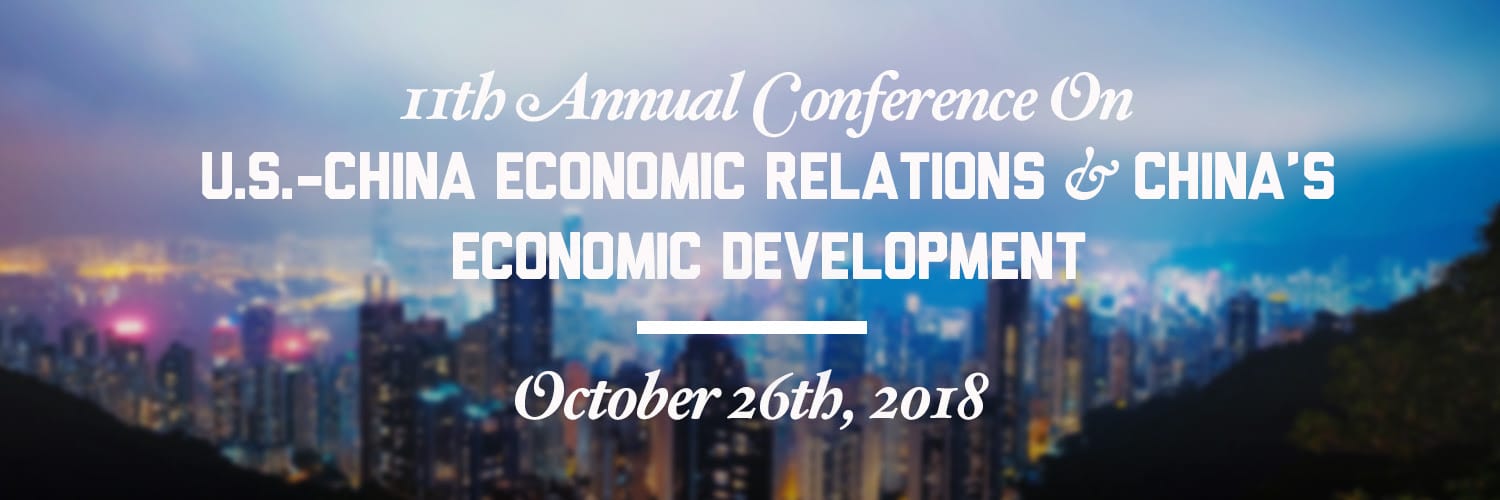
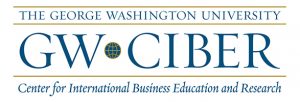
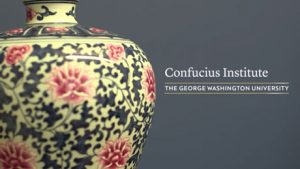


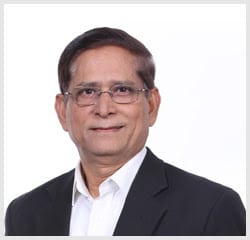 Faruque Ahmed is the executive director of BRAC International. He previously held the position of senior director at BRAC International. He is also a member of the executive management committee.
Faruque Ahmed is the executive director of BRAC International. He previously held the position of senior director at BRAC International. He is also a member of the executive management committee.